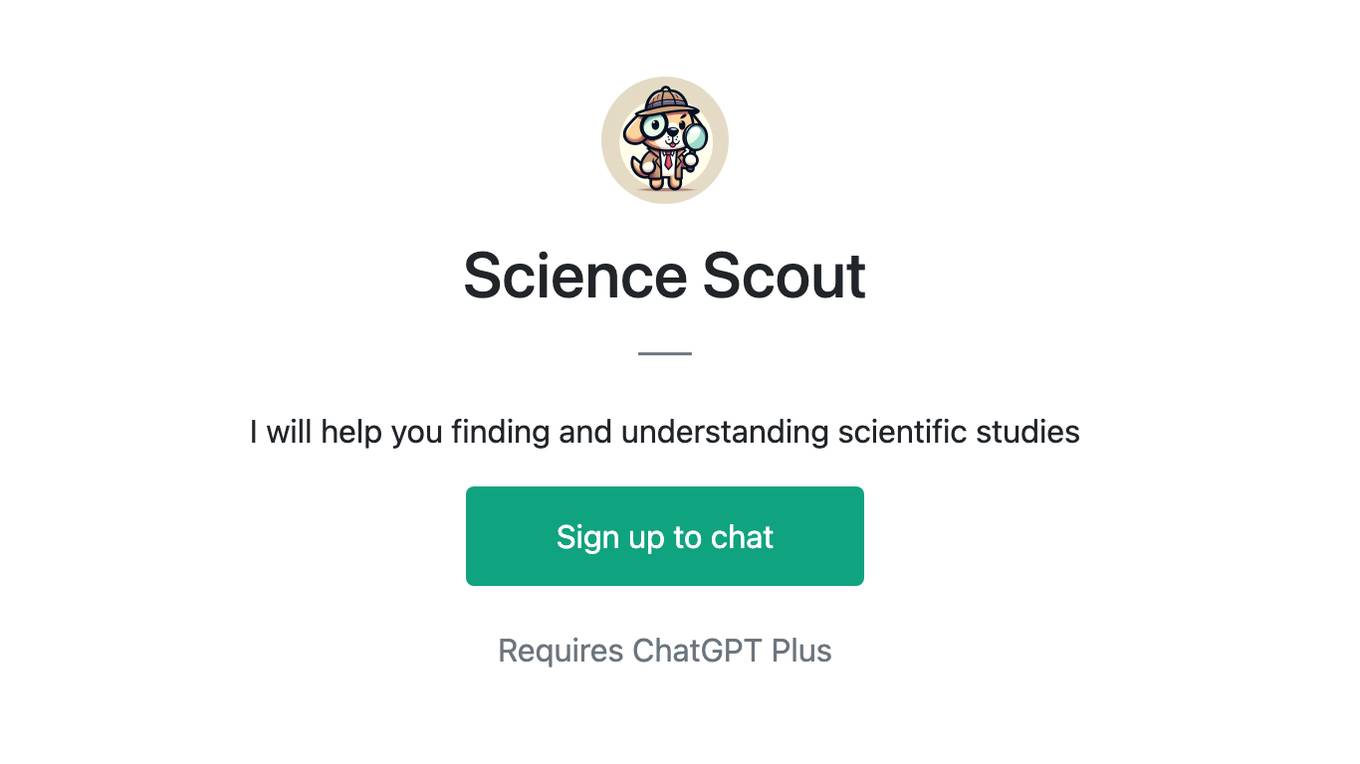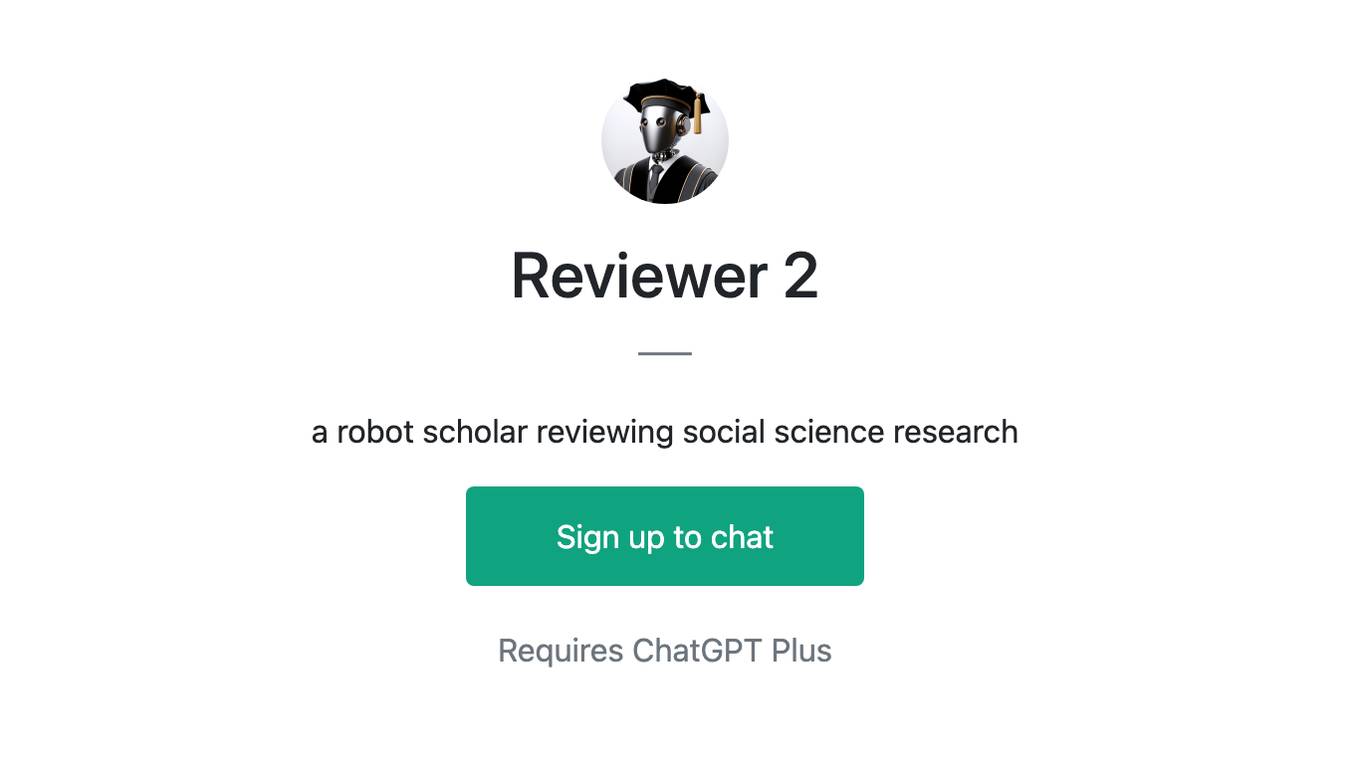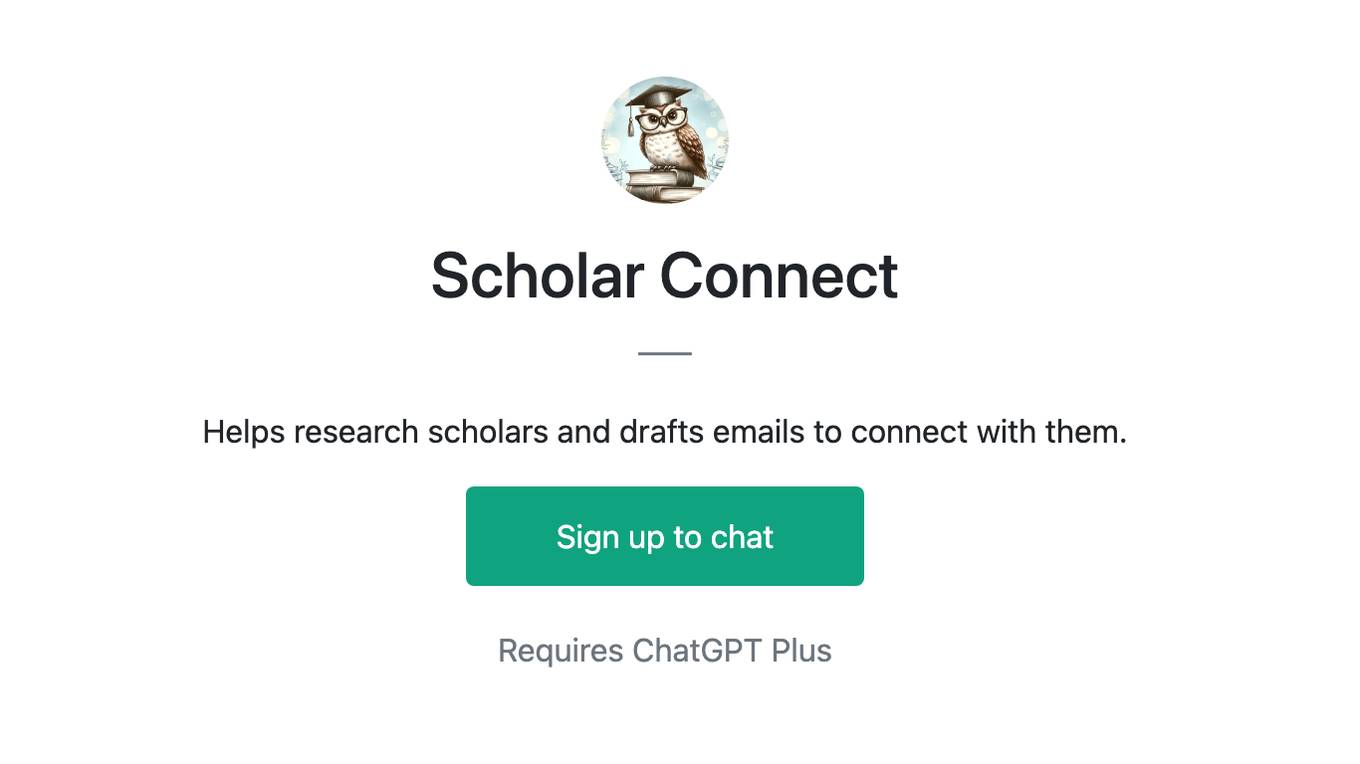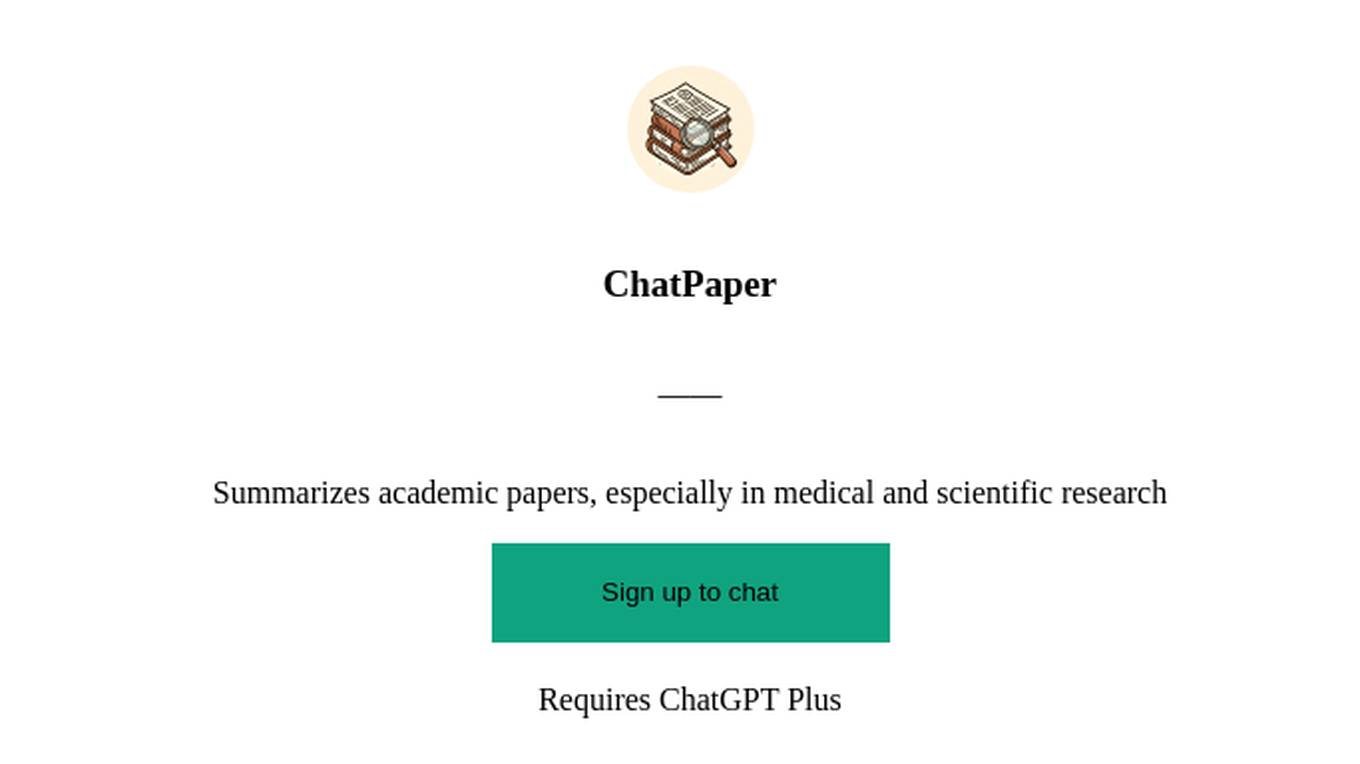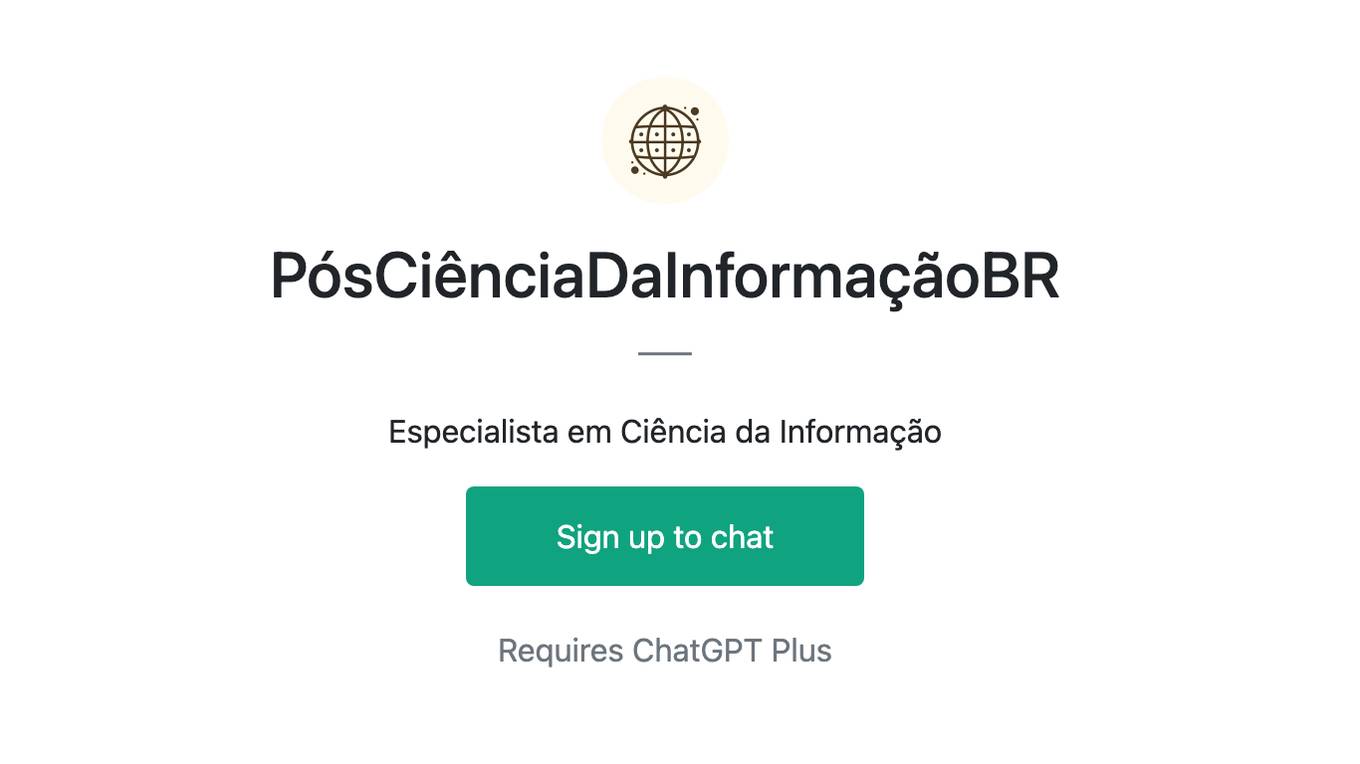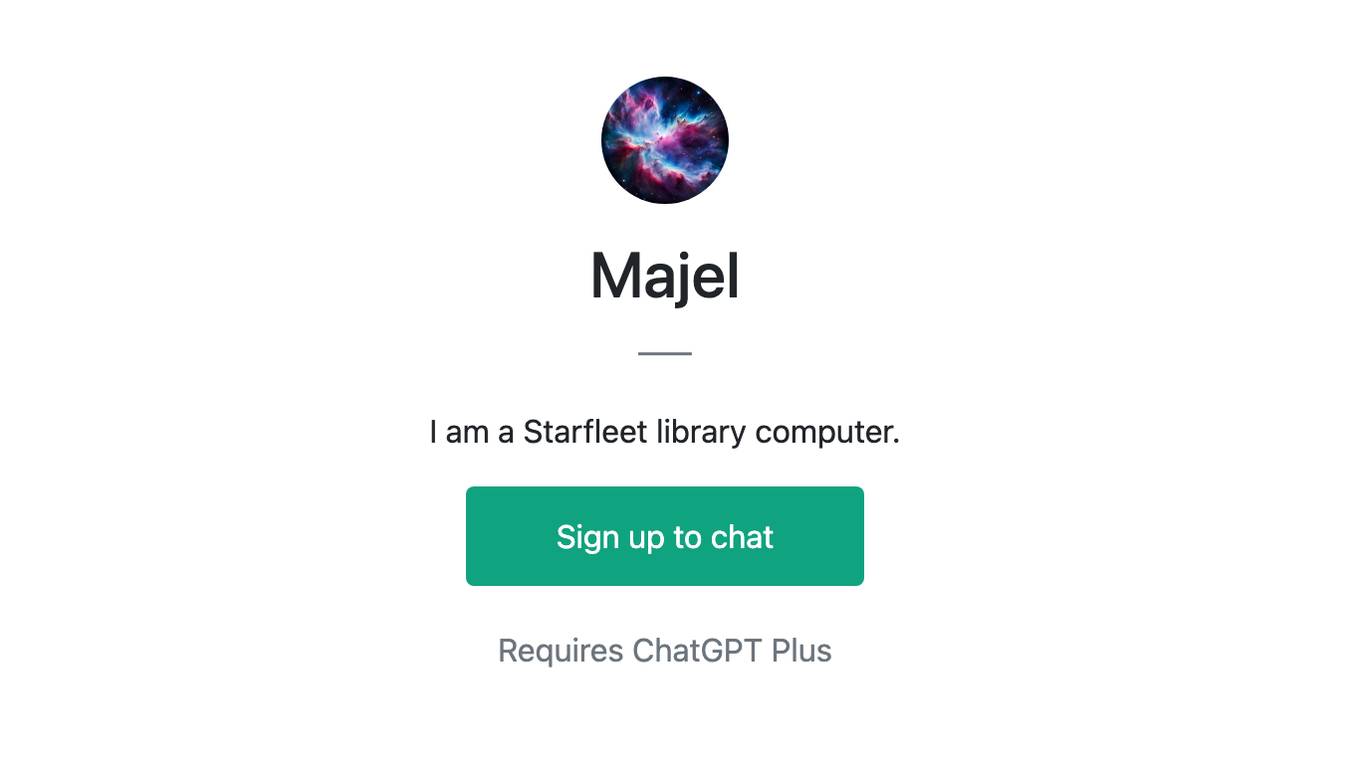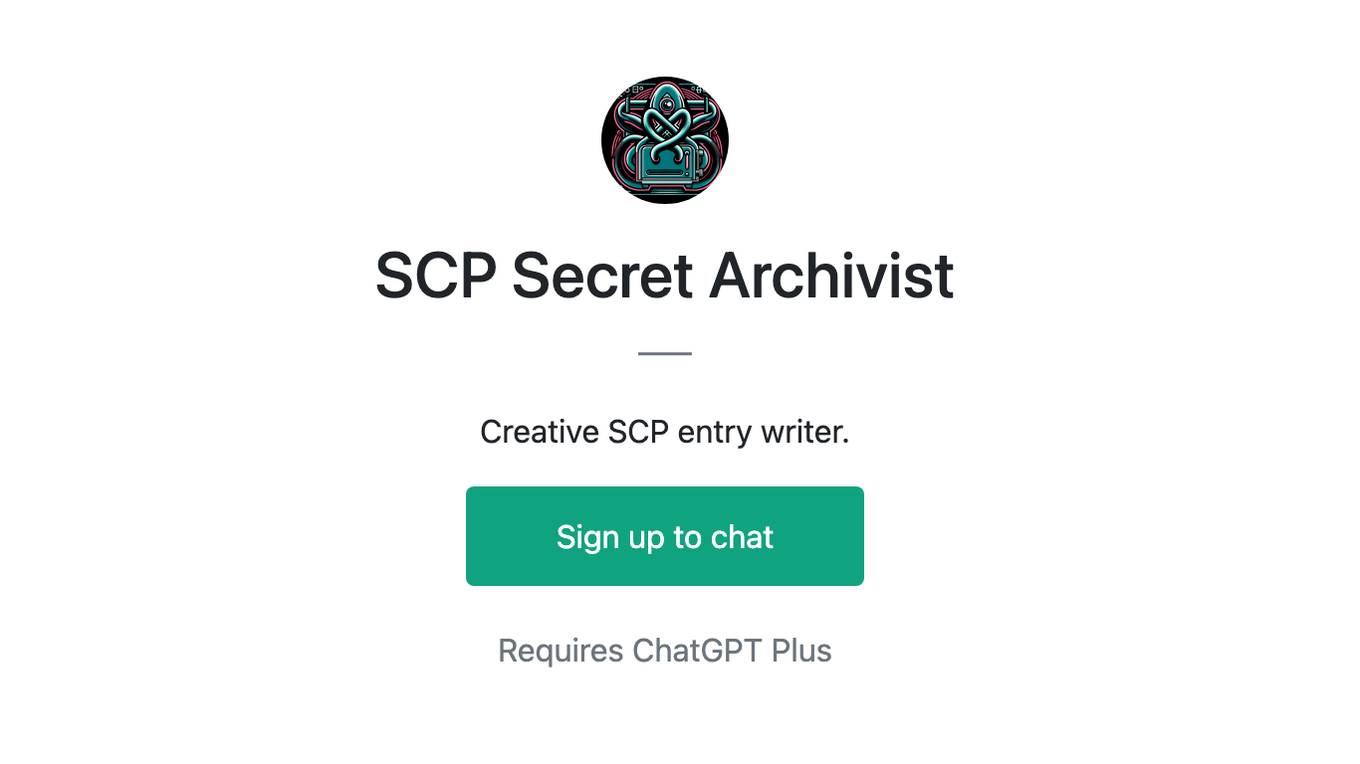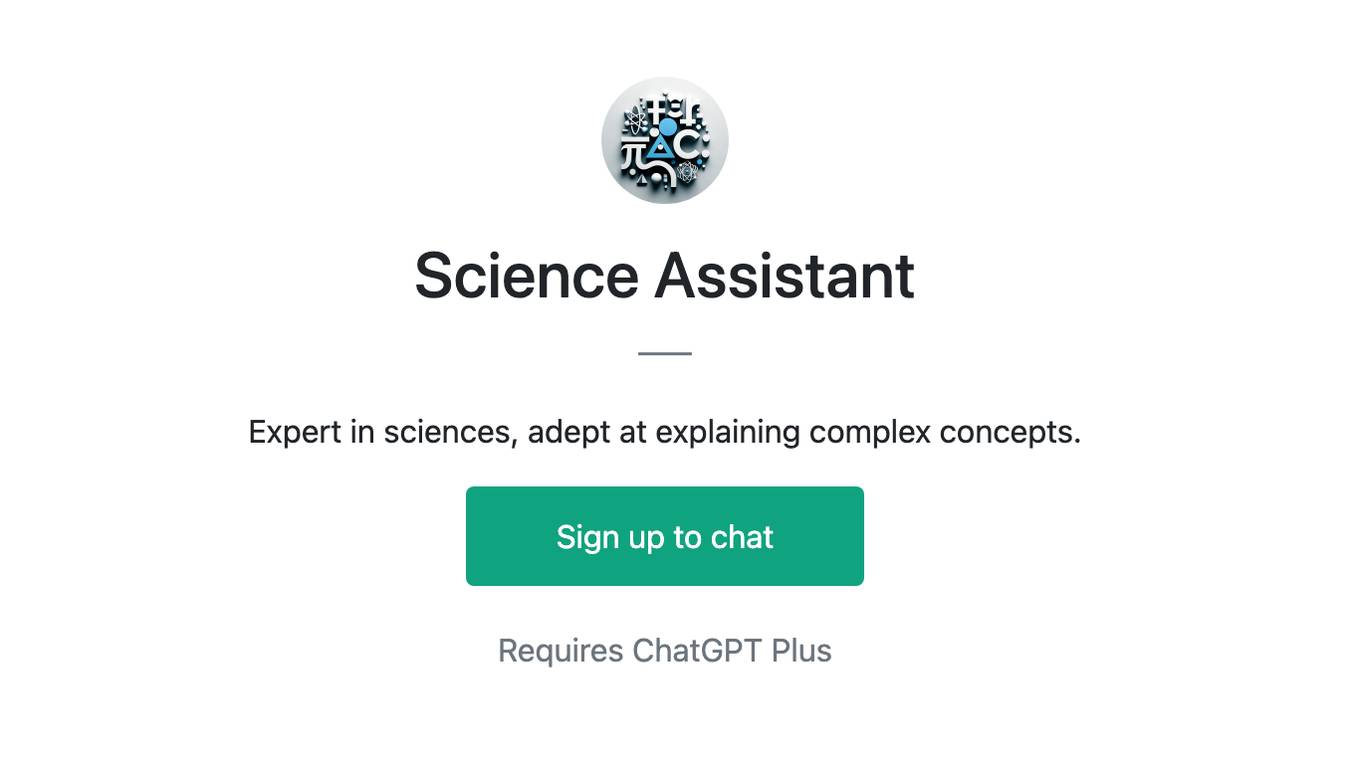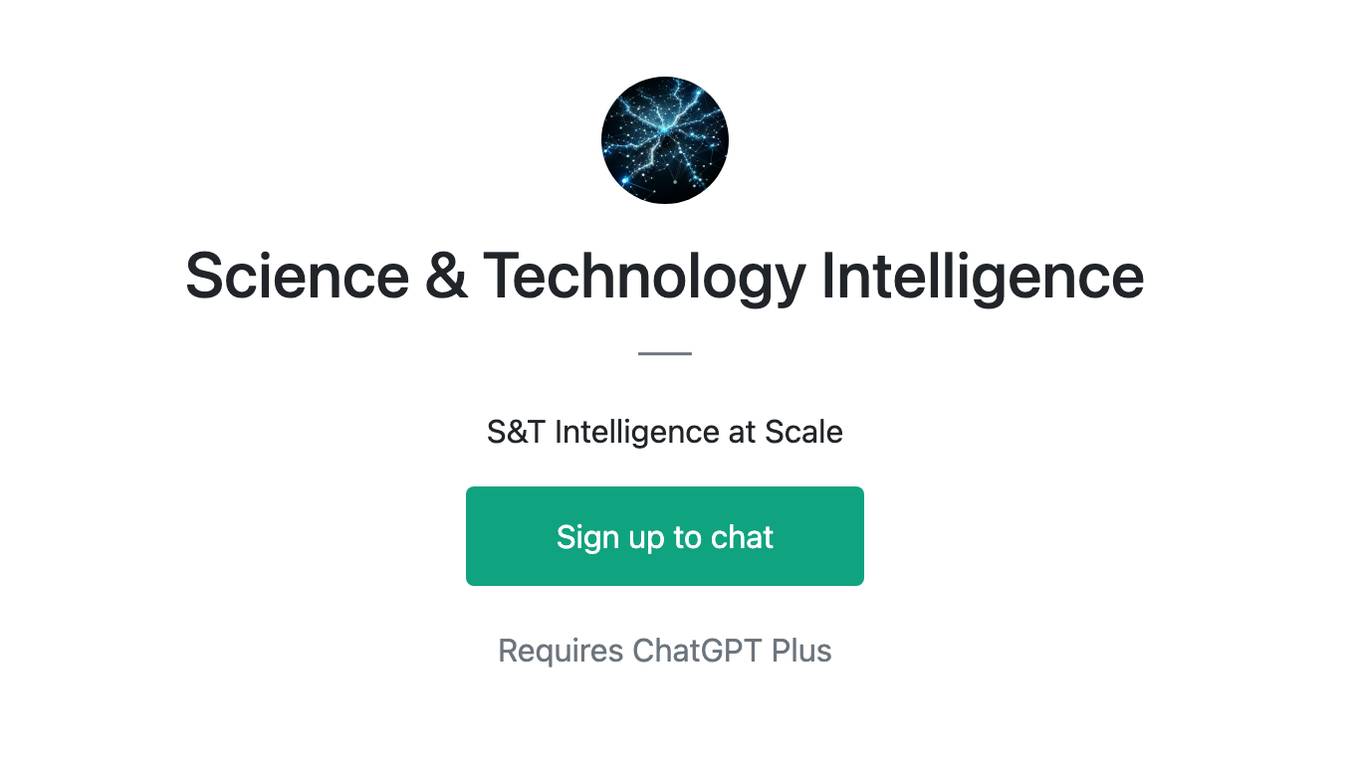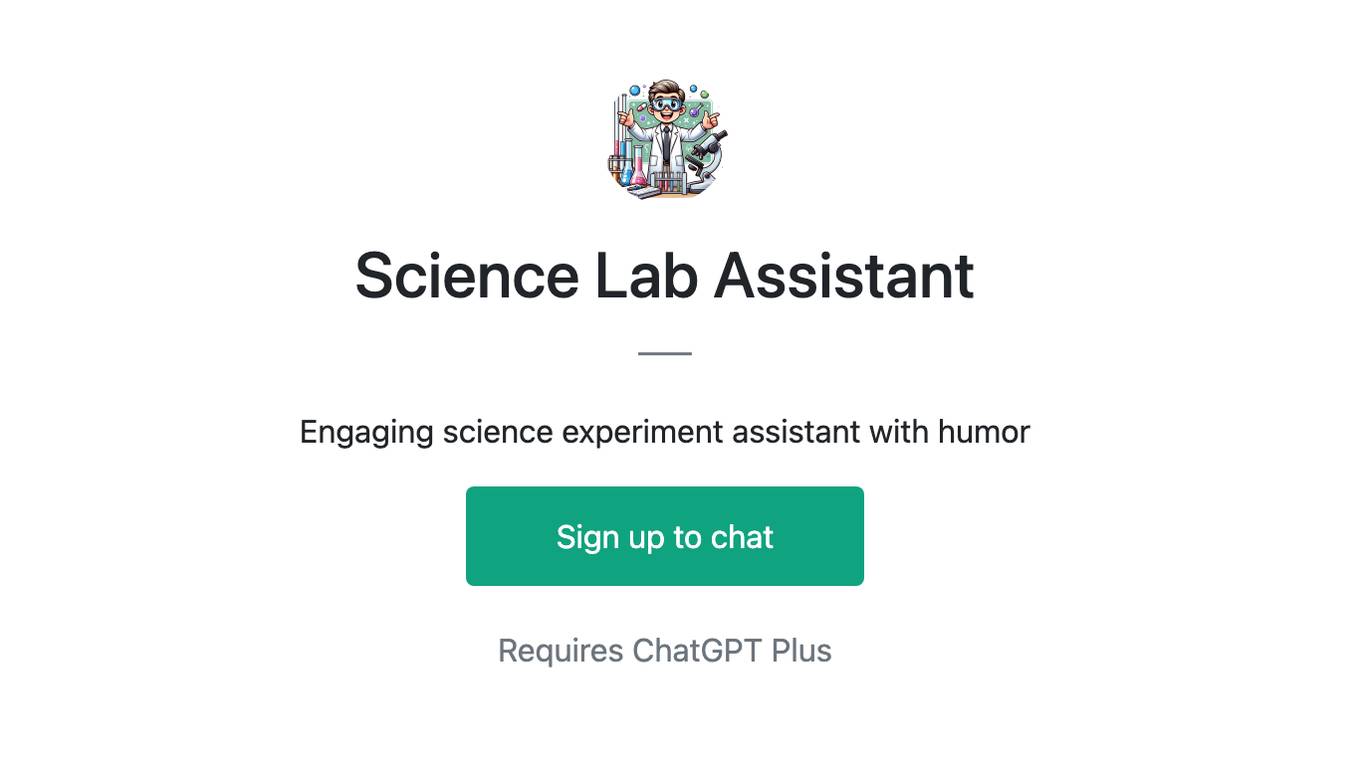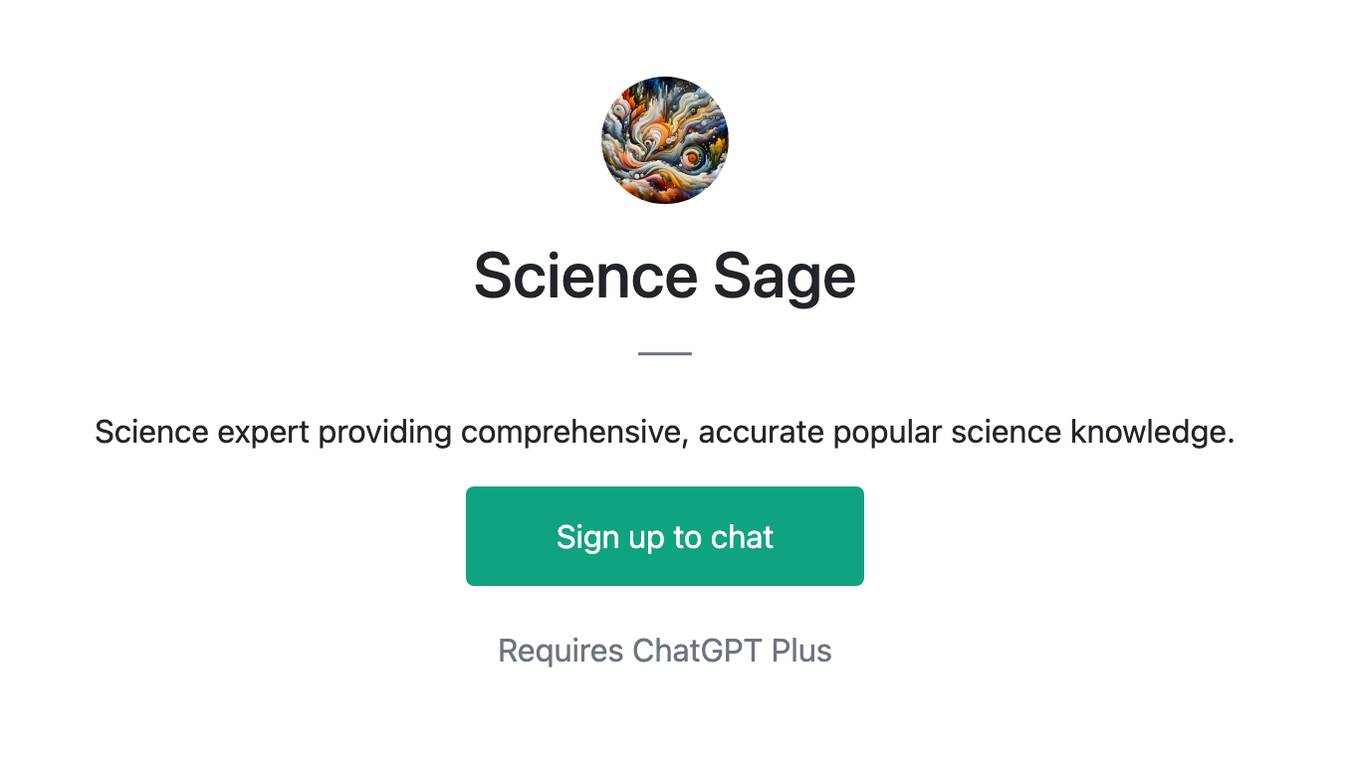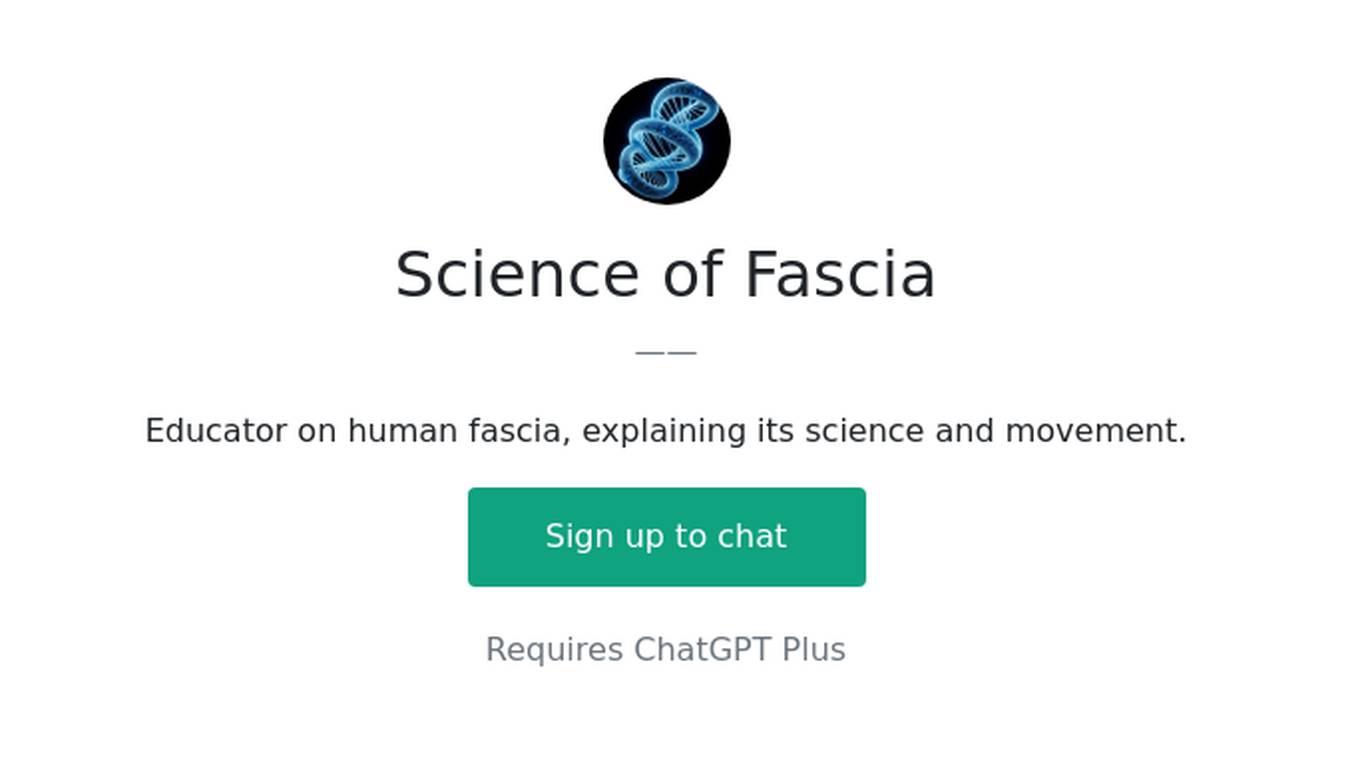Best AI tools for< Science Librarian >
Infographic
20 - AI tool Sites
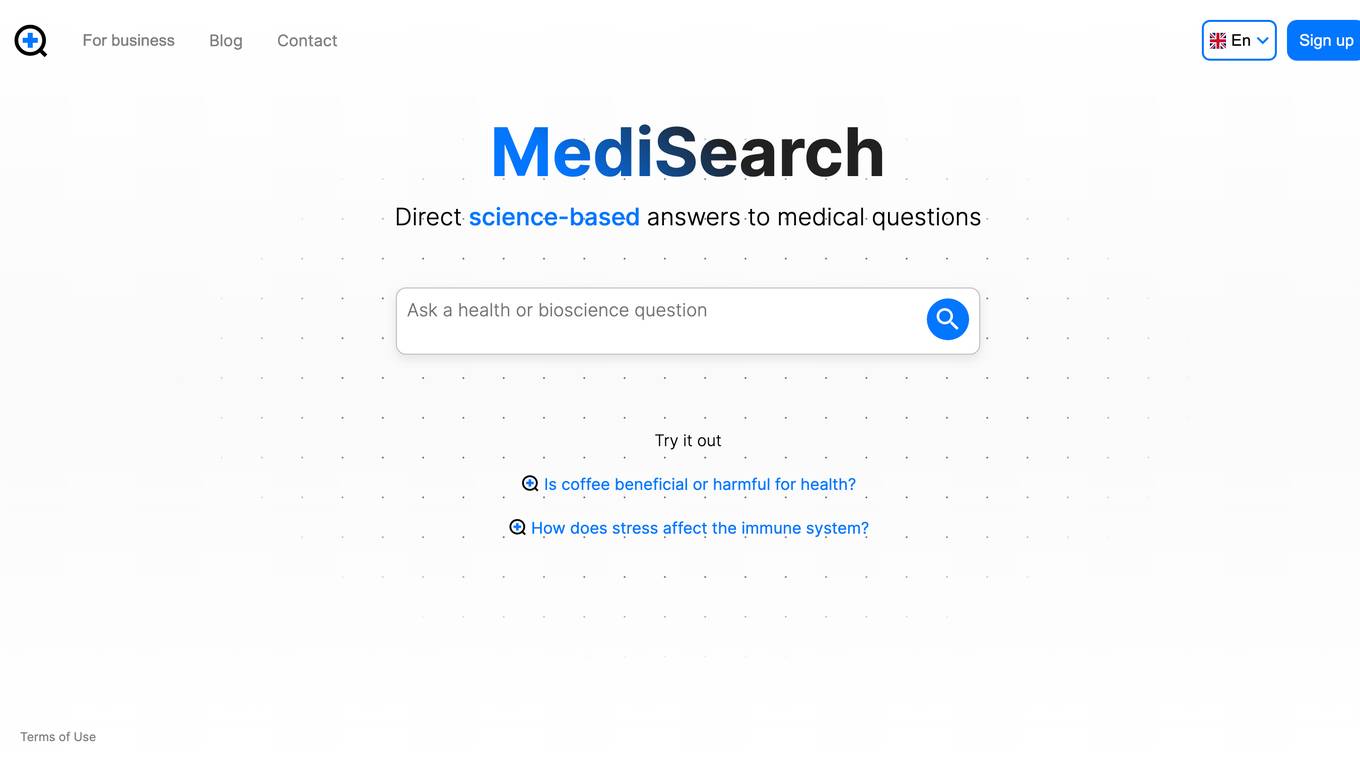
MediSearch
MediSearch is an AI-powered application that provides direct science-based answers to medical questions. Users can filter their search queries and start with common questions before diving deeper into more complex medical inquiries. The application is designed to offer reliable information and insights on various health-related topics, serving as a valuable resource for individuals seeking accurate medical information. MediSearch emphasizes that it is not a substitute for consulting a medical professional and operates within the framework of its Terms of Use.
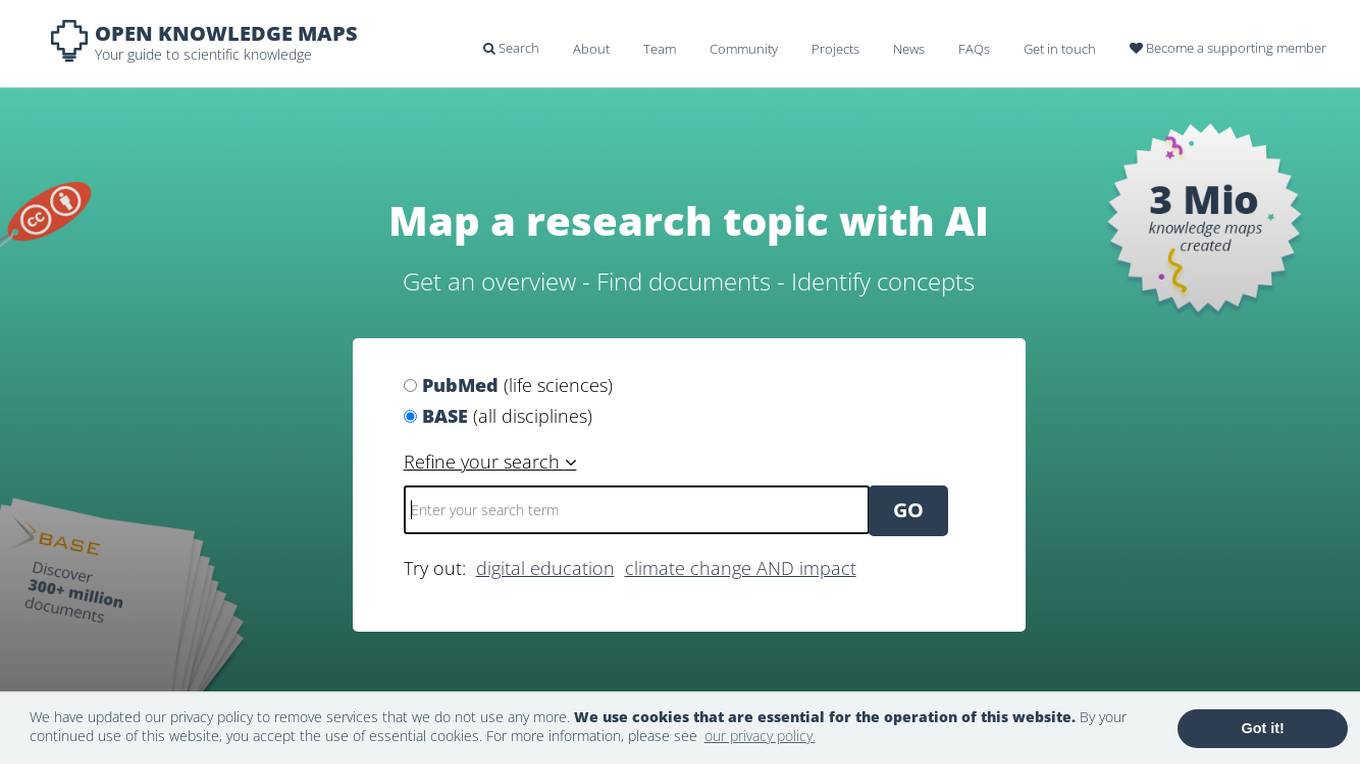
Open Knowledge Maps
Open Knowledge Maps is the world's largest AI-based search engine for scientific knowledge. It aims to revolutionize discovery by increasing the visibility of research findings for science and society. The platform is open and nonprofit, based on the principles of open science, with a mission to create an inclusive, sustainable, and equitable infrastructure for all users. Users can map research topics with AI, find documents, and identify concepts to enhance their literature search experience.
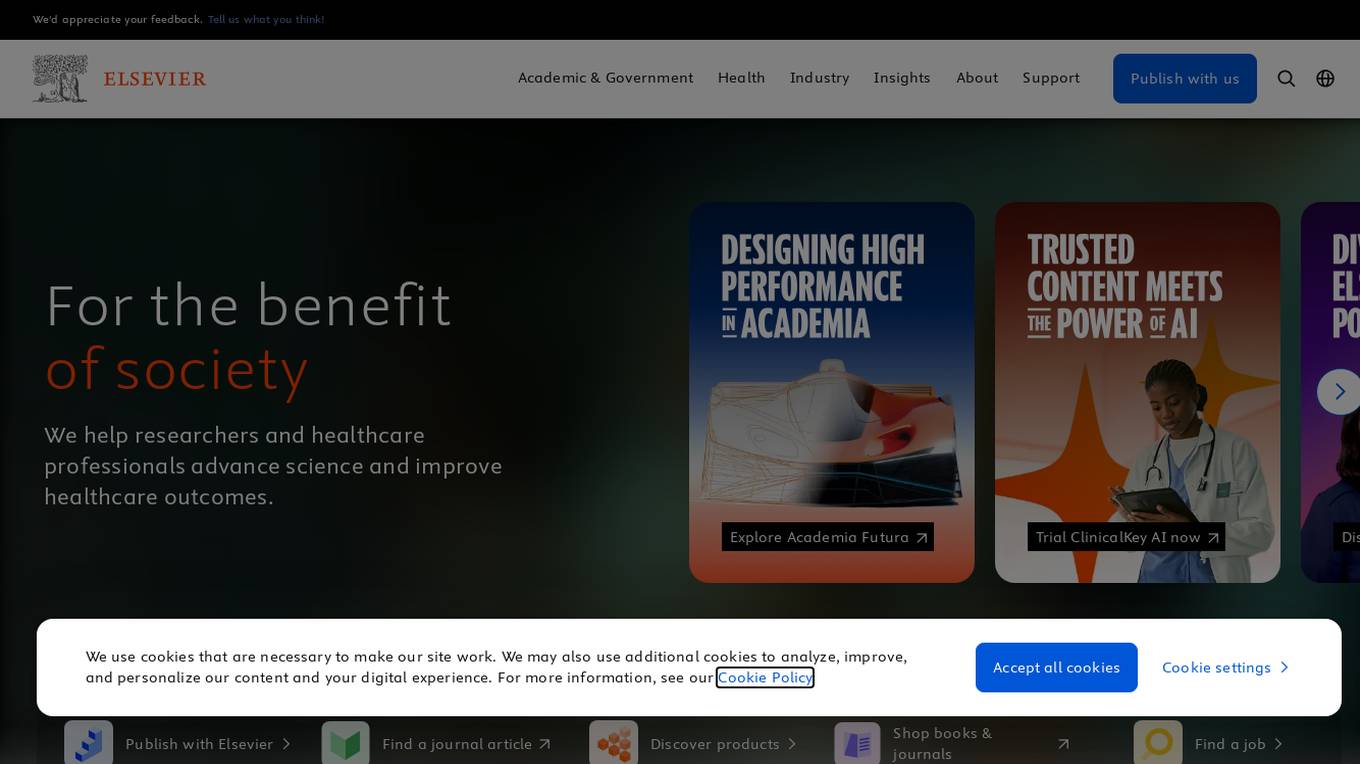
Elsevier
Elsevier is an information analytics business that supports researchers and healthcare professionals in advancing science and improving healthcare outcomes. They provide high-quality data and analytics to help researchers, librarians, and research leaders address challenges at every stage of the research journey. Elsevier offers researcher tools, research management solutions, and evaluation services to enhance productivity and research impact.
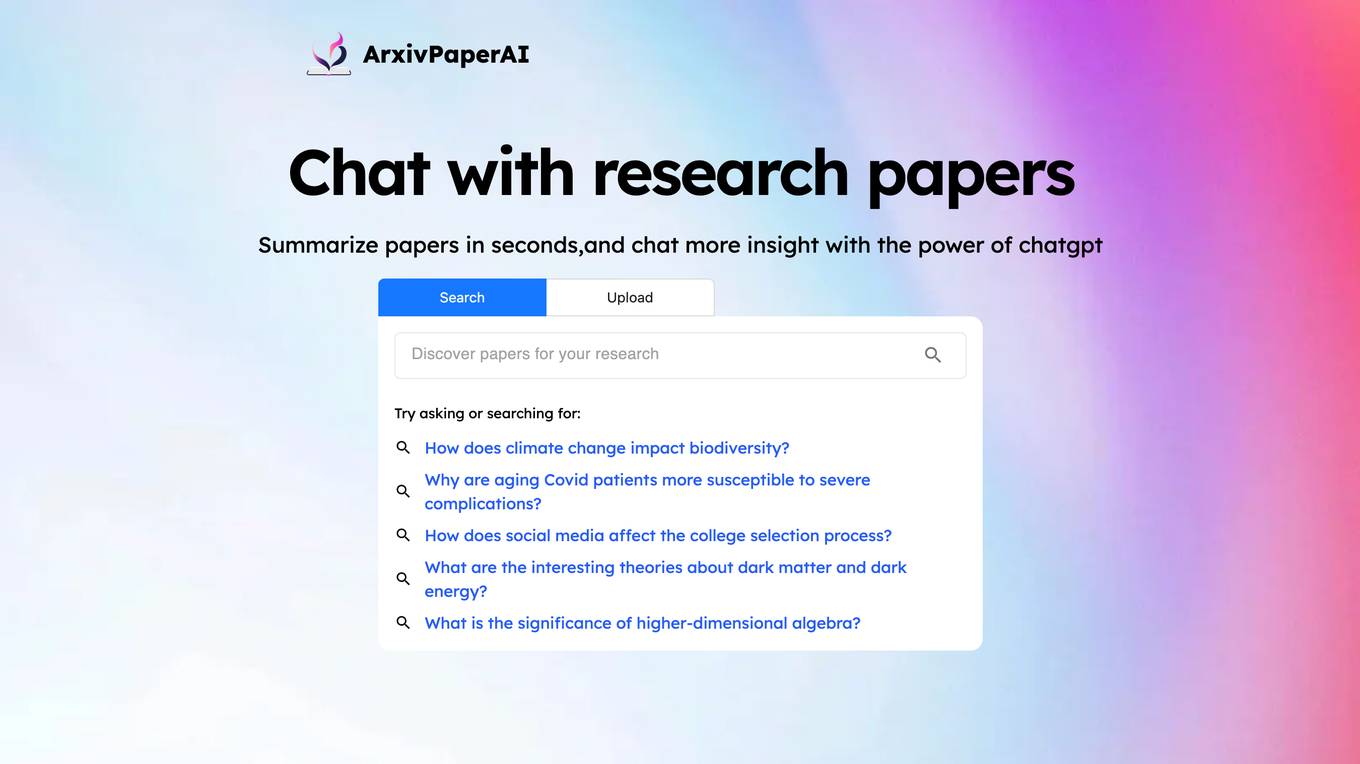
ArxivPaperAI
ArxivPaperAI is an AI-powered research paper summarizer that helps you quickly and easily understand the key points of academic papers. With ArxivPaperAI, you can:
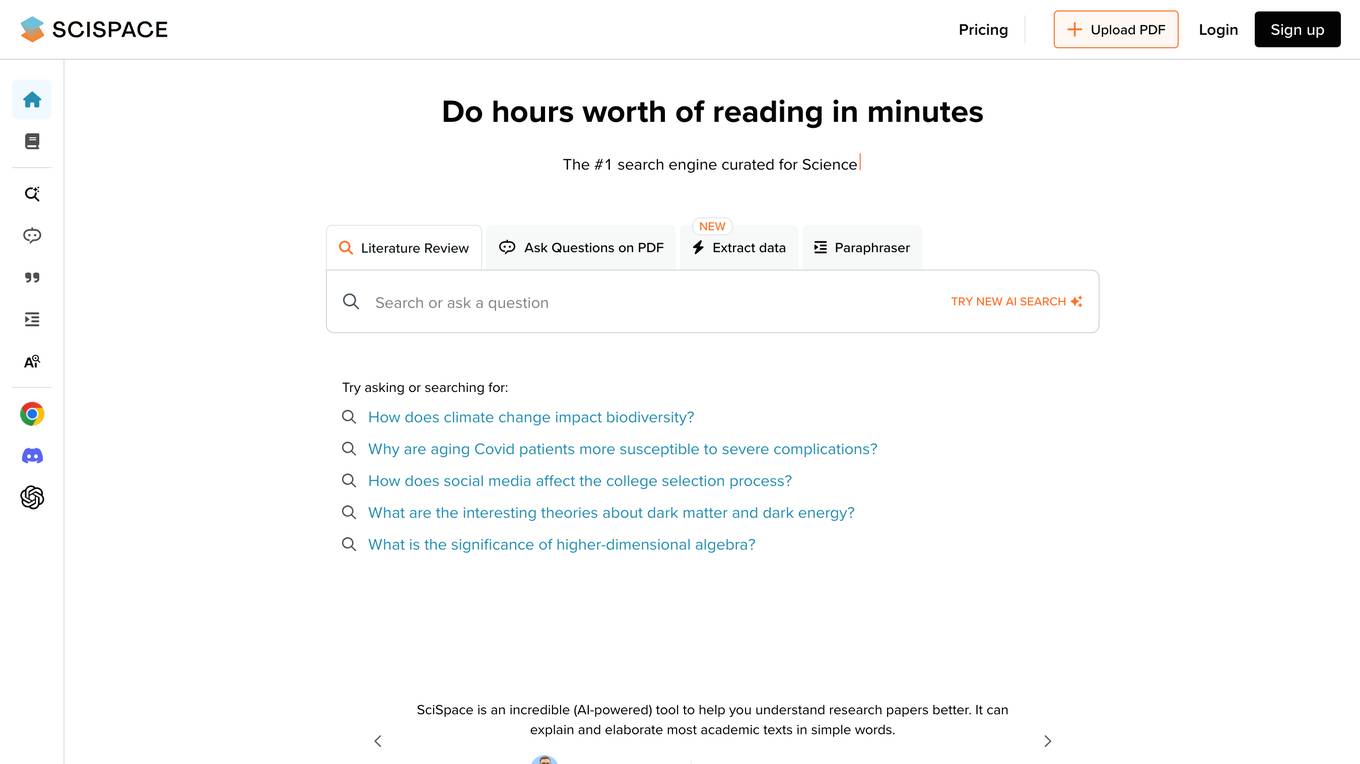
SciSpace
SciSpace is an AI-powered tool that helps researchers understand research papers better. It can explain and elaborate most academic texts in simple words. It is a great tool for students, researchers, and anyone who wants to learn more about a particular topic. SciSpace has a user-friendly interface and is easy to use. Simply upload a research paper or enter a URL, and SciSpace will do the rest. It will highlight key concepts, provide definitions, and generate a summary of the paper. SciSpace can also be used to generate citations and find related papers.
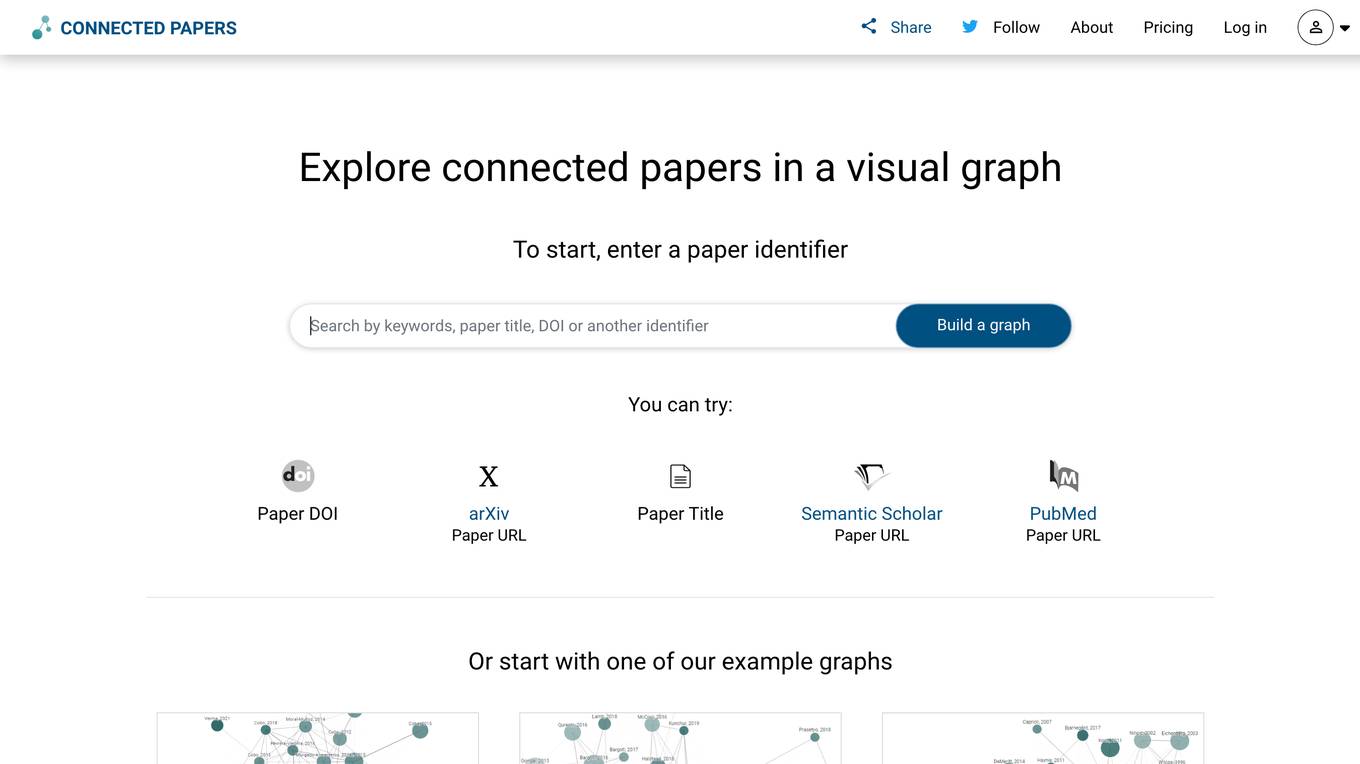
Connected Papers
Connected Papers is a search engine for academic papers that uses artificial intelligence to help users find and explore relevant research. It allows users to search for papers by keyword, author, or title, and then explore the connections between them. Connected Papers also provides a variety of tools to help users organize and manage their research, including the ability to create custom collections of papers, add notes and annotations, and share their research with others.

ResearchRabbit
ResearchRabbit is a research tool that helps researchers discover and organize academic papers. It uses artificial intelligence to recommend papers that are relevant to a researcher's interests and to visualize networks of papers and co-authorships. ResearchRabbit also allows researchers to collaborate on collections of papers and to share their findings with others.
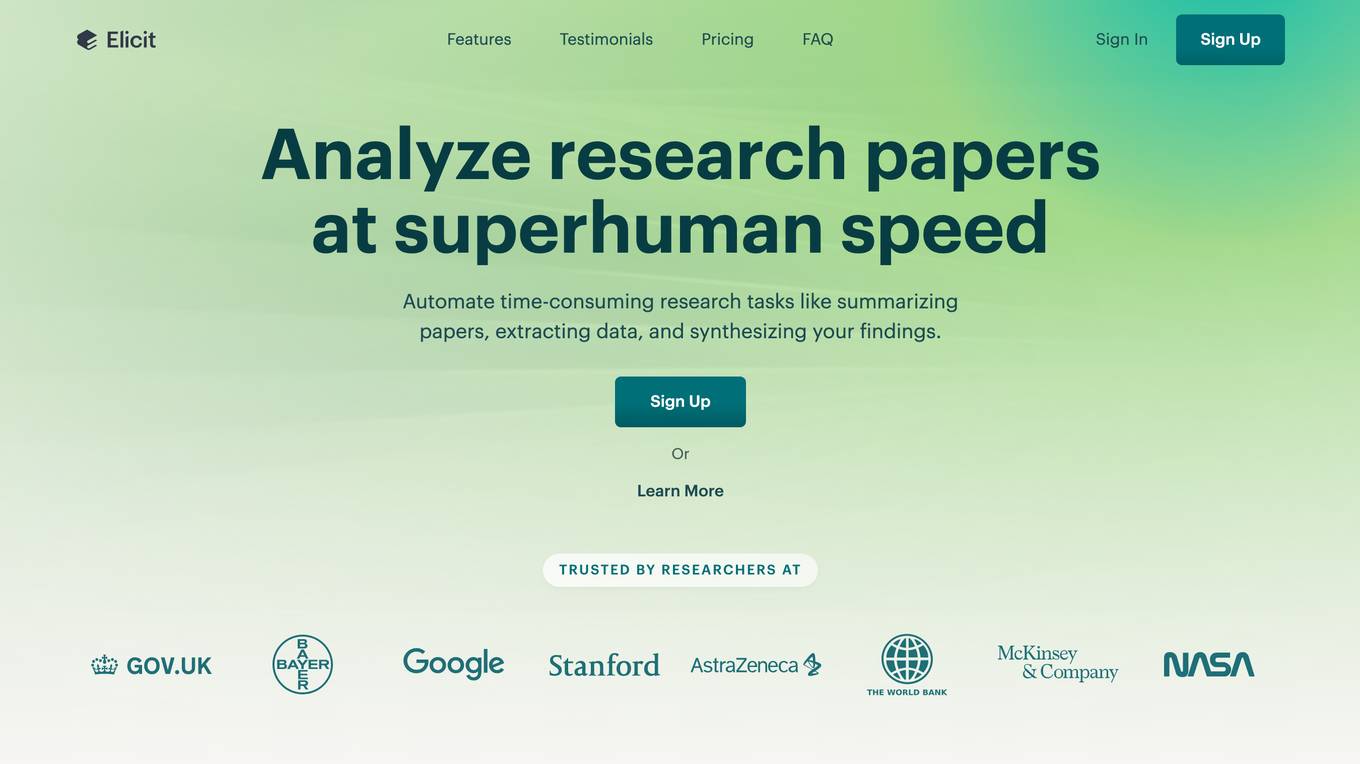
Elicit
Elicit is a research tool that uses artificial intelligence to help researchers analyze research papers more efficiently. It can summarize papers, extract data, and synthesize findings, saving researchers time and effort. Elicit is used by over 800,000 researchers worldwide and has been featured in publications such as Nature and Science. It is a powerful tool that can help researchers stay up-to-date on the latest research and make new discoveries.

OpenRead
OpenRead is an AI-powered research tool that helps users discover, understand, and organize scientific literature. It offers a variety of features to make research more efficient and effective, including semantic search, AI summarization, and note-taking tools. OpenRead is designed to help researchers of all levels, from students to experienced professionals, save time and improve their research outcomes.
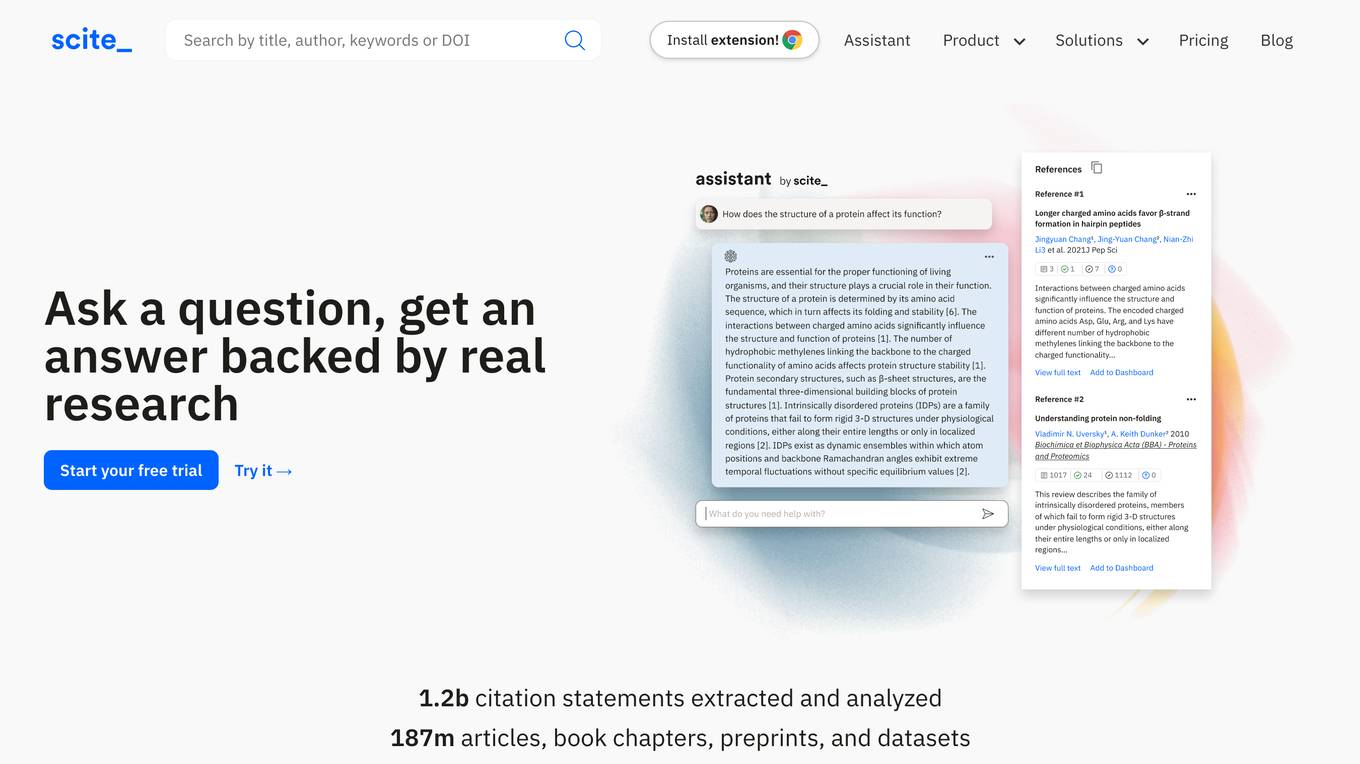
Scite
Scite is an award-winning platform for discovering and evaluating scientific articles via Smart Citations. Smart Citations allow users to see how a publication has been cited by providing the context of the citation and a classification describing whether it provides supporting or contrasting evidence for the cited claim.
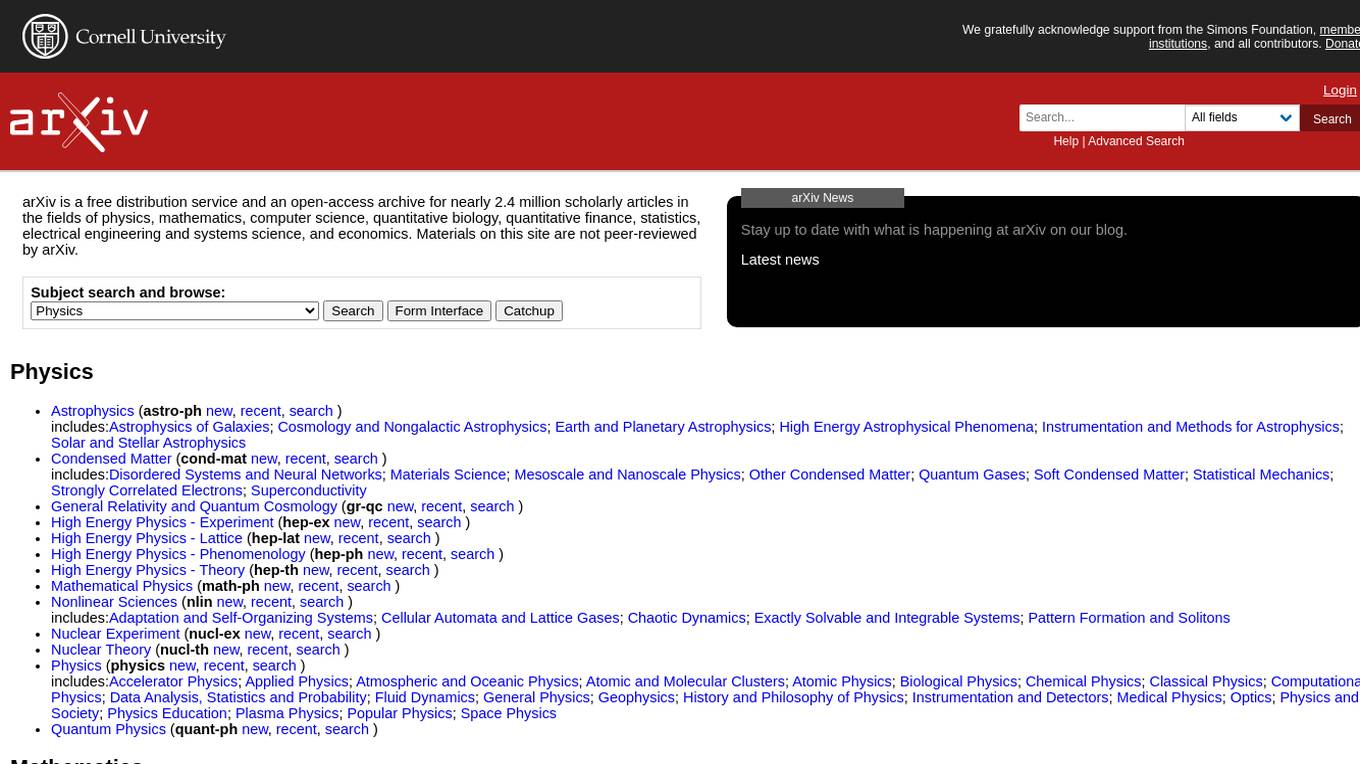
arXiv
arXiv.org is a free distribution service and an open-access archive for nearly 2.4 million scholarly articles in the fields of physics, mathematics, computer science, quantitative biology, quantitative finance, statistics, electrical engineering and systems science, and economics. Materials on this site are not peer-reviewed by arXiv.
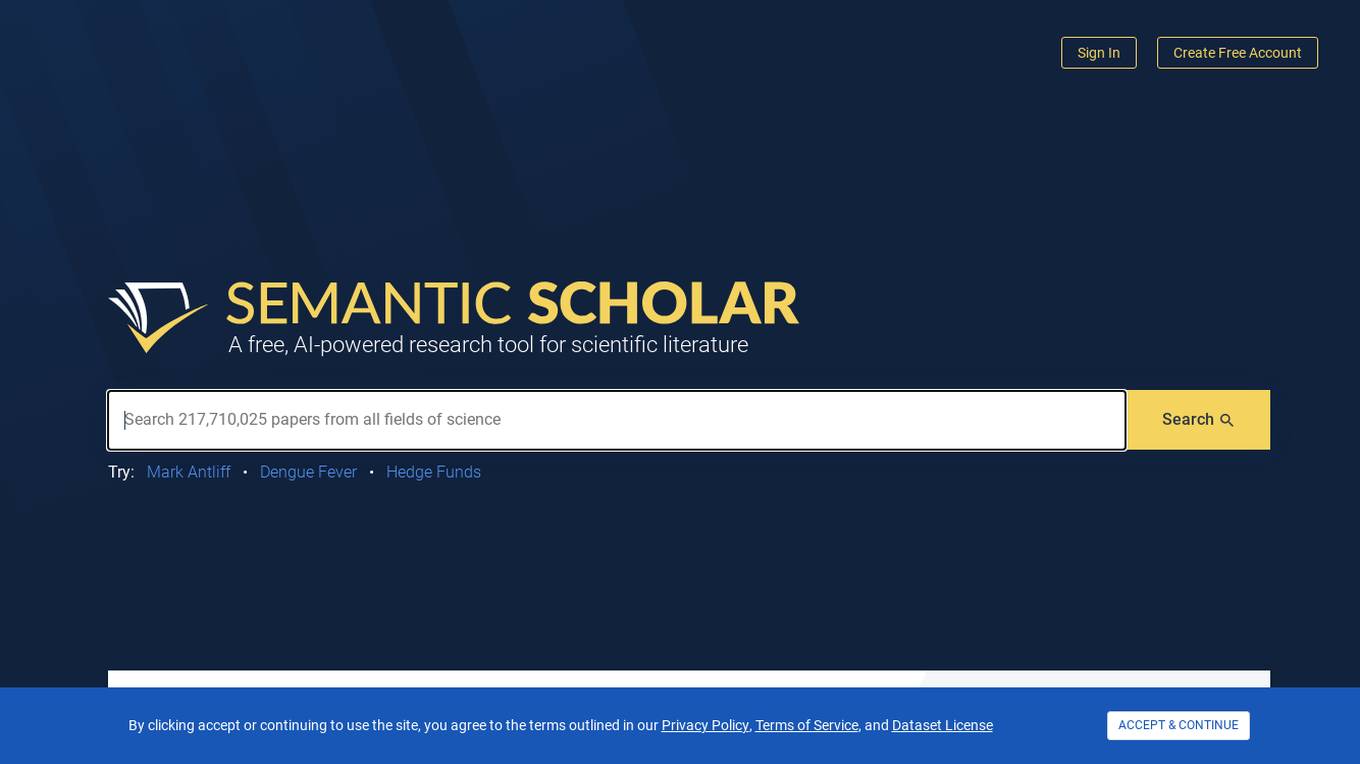
Semantic Scholar
Semantic Scholar is a free, AI-powered research tool for scientific literature. It is based at the Allen Institute for AI and provides access to over 217 million papers from all fields of science. Semantic Scholar uses AI to help users discover and explore scientific literature, and to stay up-to-date on the latest research. The tool also includes a number of features to help users manage their research, such as the ability to save papers, create bibliographies, and share research with others.

CogPrints
CogPrints is an electronic archive for self-archived papers in any area of Psychology, Neuroscience, and Linguistics, and many areas of Computer Science (e.g., artificial intelligence, robotics, vision, learning, speech, neural networks), Philosophy (e.g., mind, language, knowledge, science, logic), Biology (e.g., ethology, behavioral ecology, sociobiology, behavior genetics, evolutionary theory), Medicine (e.g., Psychiatry, Neurology, human genetics, Imaging), Anthropology (e.g., primatology, cognitive ethnology, archeology, paleontology), as well as any other portions of the physical, social and mathematical sciences that are pertinent to the study of cognition.
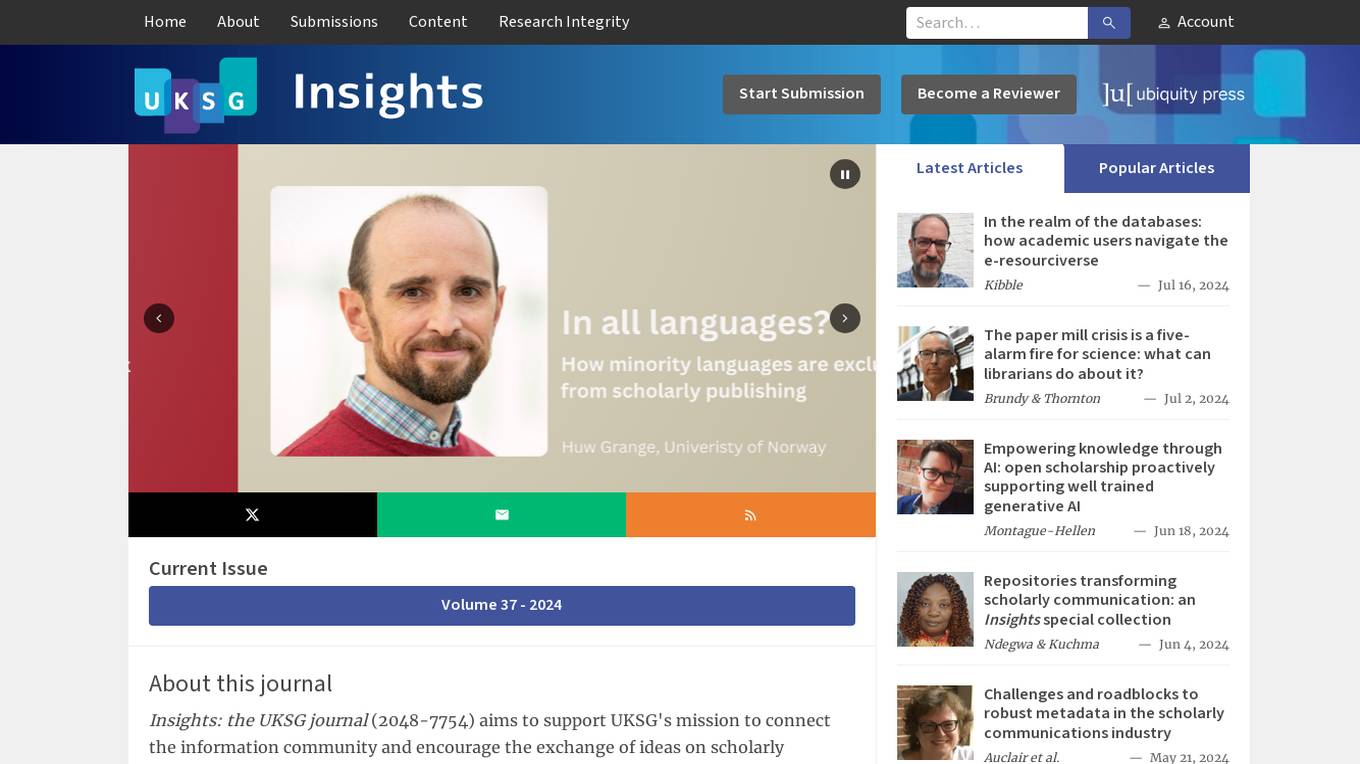
Insights
Insights is an AI tool designed to support UKSG's mission by connecting the information community and encouraging the exchange of ideas on scholarly communication. It provides a forum for stakeholders in the global knowledge community to communicate and exchange ideas. Insights disseminates news, information, and publications to raise awareness of services supporting the scholarly information sector. The journal was previously known as Serials: The Journal for the Serials Community and has been fully digitized and is openly accessible at serials.uksg.org.

Streamlit
Streamlit is a web application framework that allows users to create interactive web applications effortlessly using Python. It enables data scientists and developers to build and deploy data-driven applications quickly and easily. With Streamlit, users can create interactive visualizations, dashboards, and machine learning models without the need for extensive web development knowledge. The platform provides a simple and intuitive way to turn data scripts into shareable web apps, making it ideal for prototyping, showcasing projects, and sharing insights with others.
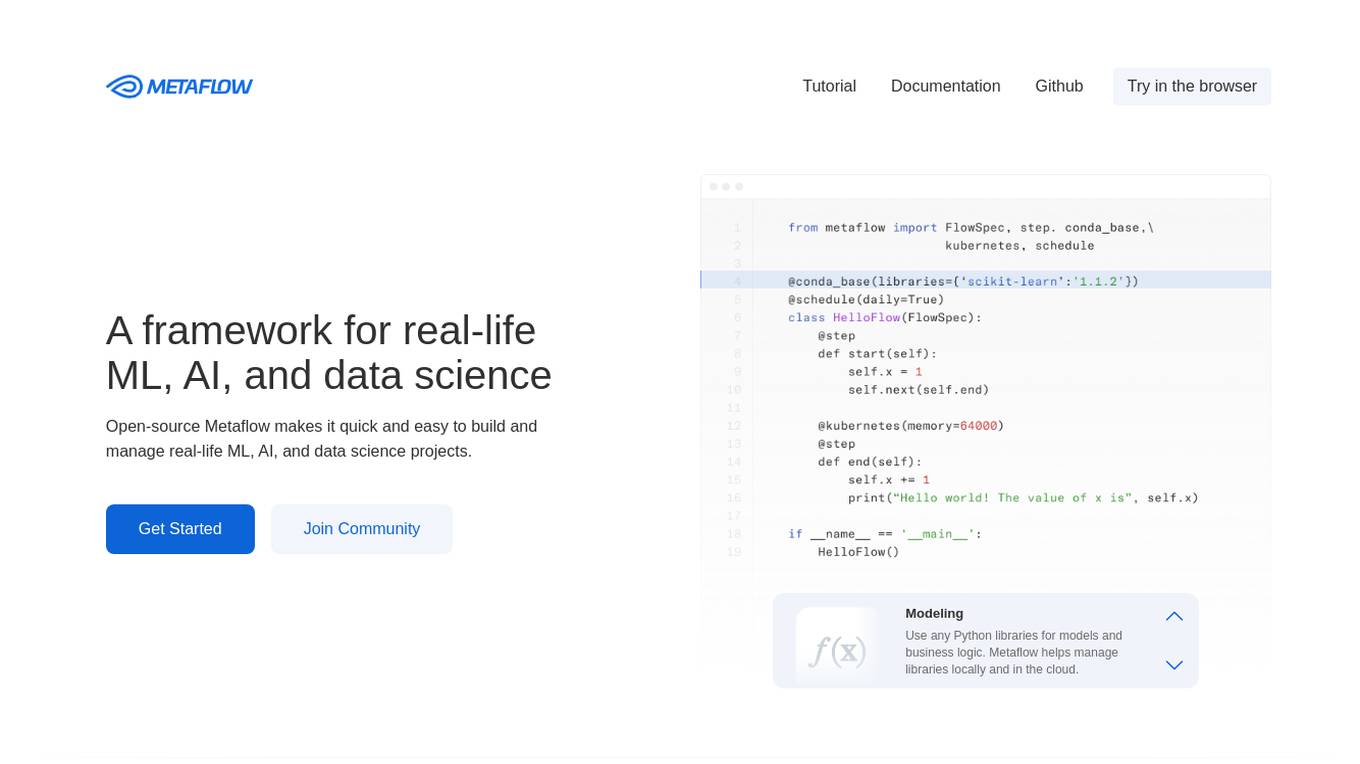
Metaflow
Metaflow is an open-source framework for building and managing real-life ML, AI, and data science projects. It makes it easy to use any Python libraries for models and business logic, deploy workflows to production with a single command, track and store variables inside the flow automatically for easy experiment tracking and debugging, and create robust workflows in plain Python. Metaflow is used by hundreds of companies, including Netflix, 23andMe, and Realtor.com.
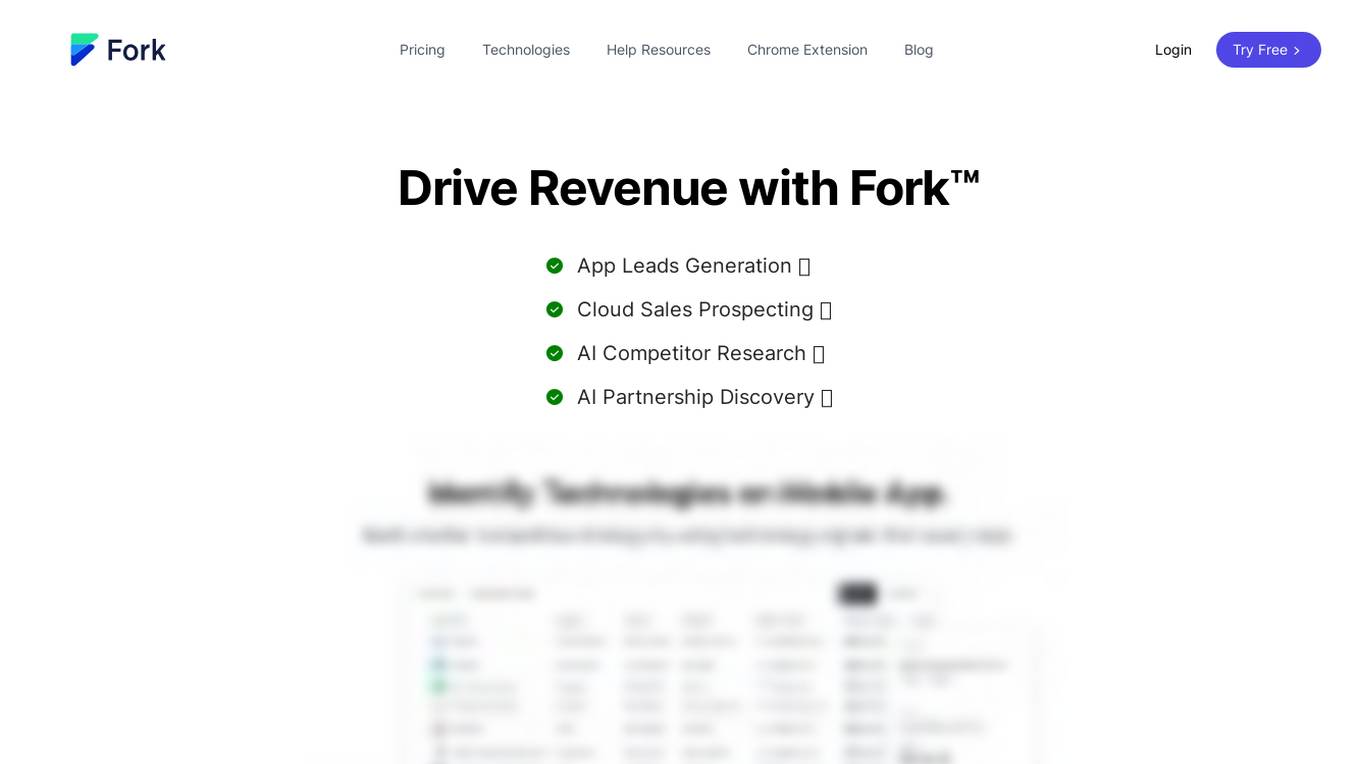
Fork.ai
Fork.ai is a tool that helps businesses identify technologies used in mobile apps. With Fork.ai, businesses can gain insights into their competitors' tech stacks, identify potential partners, and generate leads. Fork.ai's key features include: - Technology identification: Fork.ai can identify over 1,000 technologies used in mobile apps, including programming languages, frameworks, libraries, and SDKs. - Competitor analysis: Fork.ai provides insights into the technologies used by your competitors, allowing you to identify areas where you can gain a competitive advantage. - Lead generation: Fork.ai can help you generate leads by identifying potential customers who are using specific technologies. - Partnership discovery: Fork.ai can help you identify potential partners who are using complementary technologies.

Science in the News
Science in the News is a Harvard graduate student organization with a mission to bridge the communication gap between scientists and non-scientists. It provides a platform for researchers to share their work with the wider community in an accessible and engaging way. The website features articles, podcasts, videos, and other resources on a wide range of scientific topics, including astronomy, biology, chemistry, computer science, and physics.
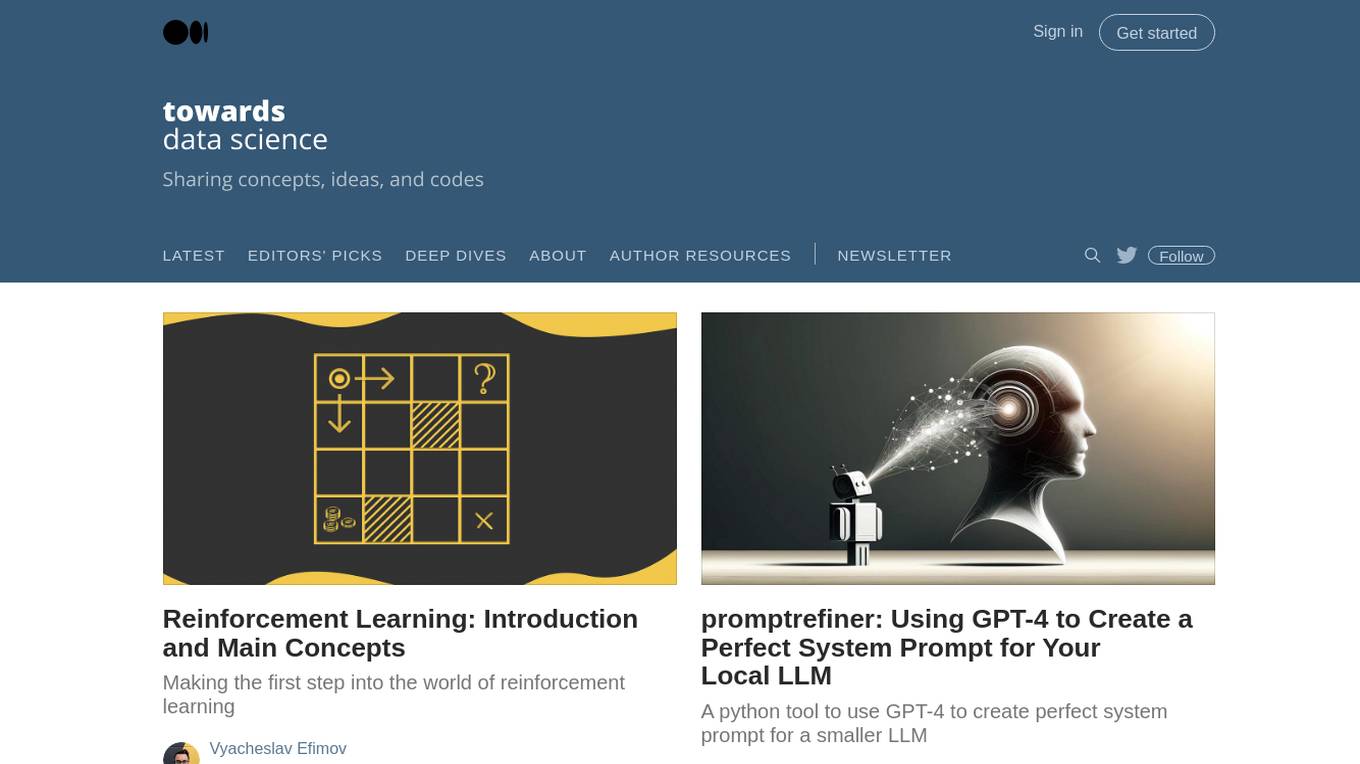
Towards Data Science
Towards Data Science is a Medium publication dedicated to sharing concepts, ideas, and codes in the field of data science. It provides a platform for data scientists, researchers, and practitioners to connect, learn, and contribute to the advancement of the field.
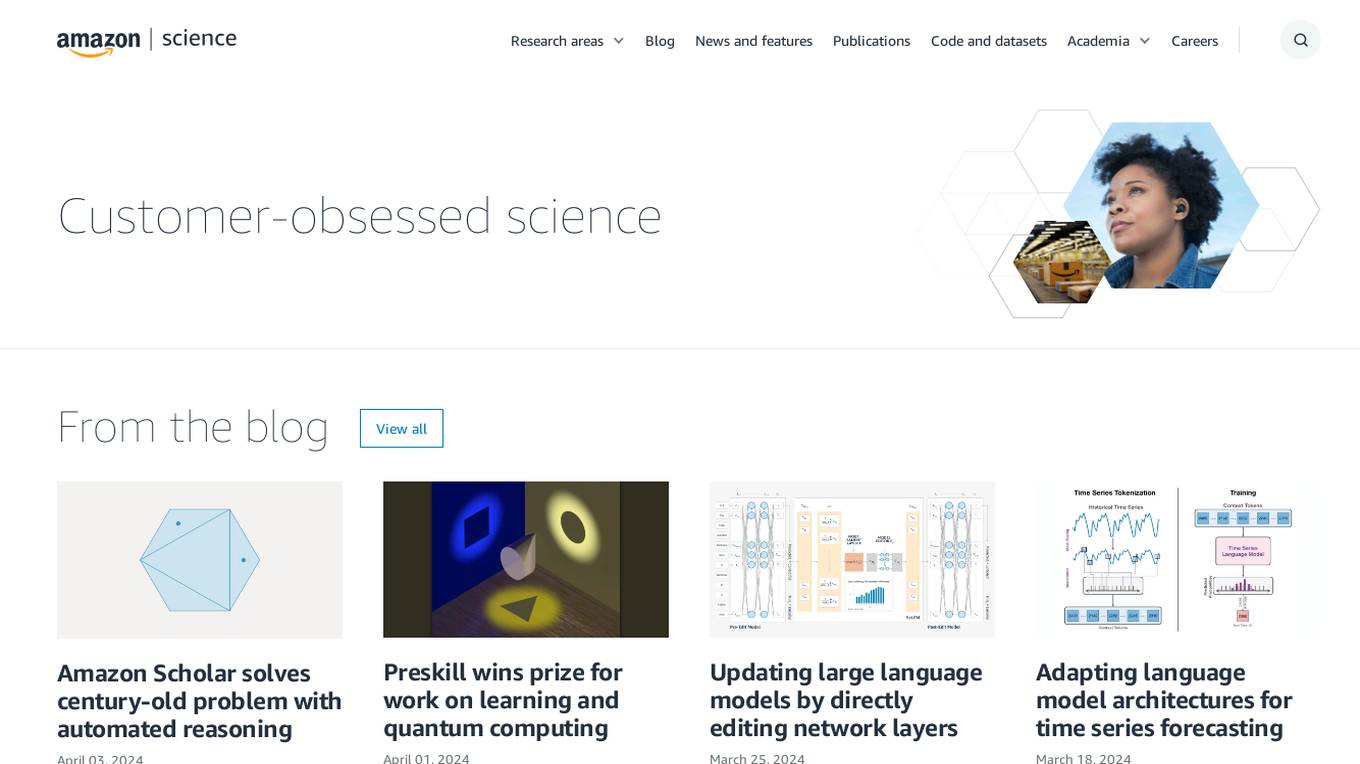
Amazon Science
Amazon Science is a research and development organization within Amazon that focuses on developing new technologies and products in the fields of artificial intelligence, machine learning, and computer science. The organization is home to a team of world-renowned scientists and engineers who are working on a wide range of projects, including developing new algorithms for machine learning, building new computer vision systems, and creating new natural language processing tools. Amazon Science is also responsible for developing new products and services that use these technologies, such as the Amazon Echo and the Amazon Fire TV.
0 - Open Source Tools
20 - OpenAI Gpts
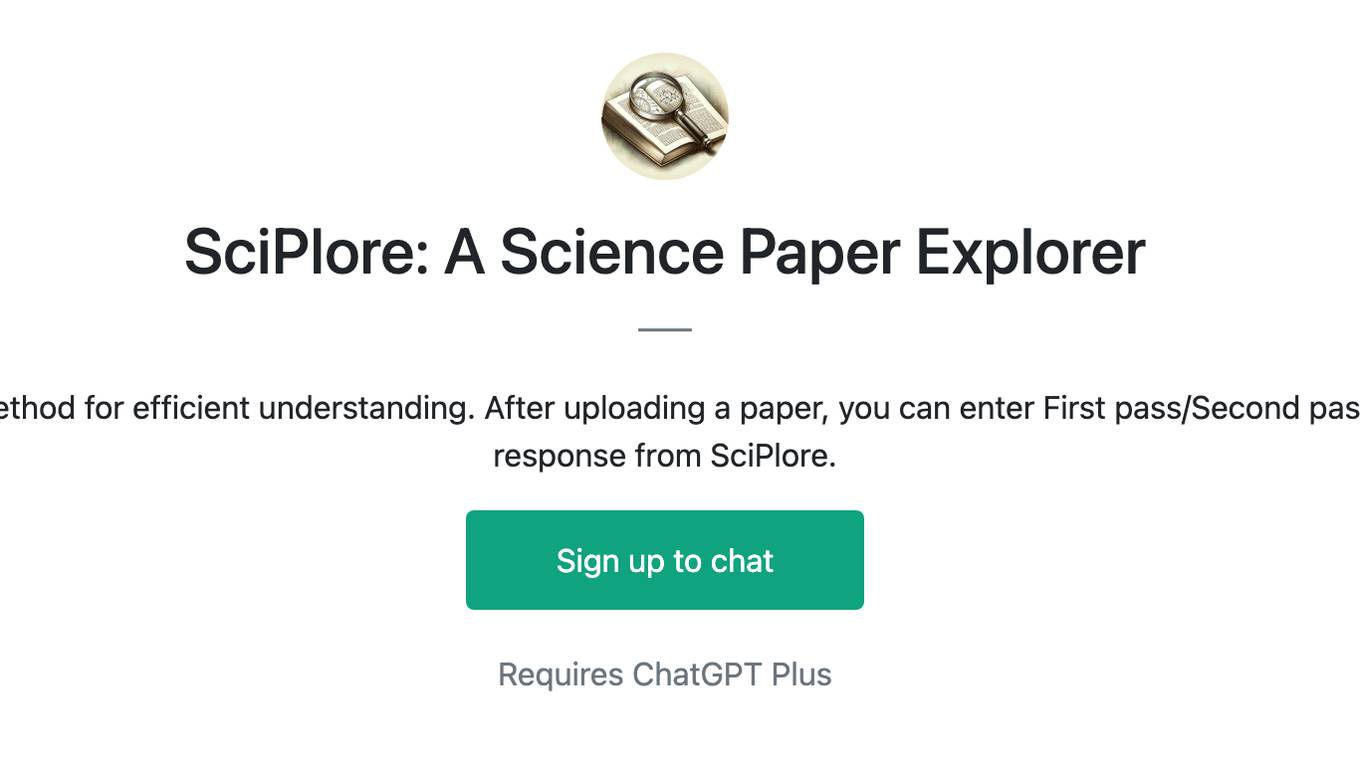
SciPlore: A Science Paper Explorer
Explain scientific papers using the 3-pass method for efficient understanding. After uploading a paper, you can enter First pass/Second pass /Third pass / Q&A to get different level of response from SciPlore.
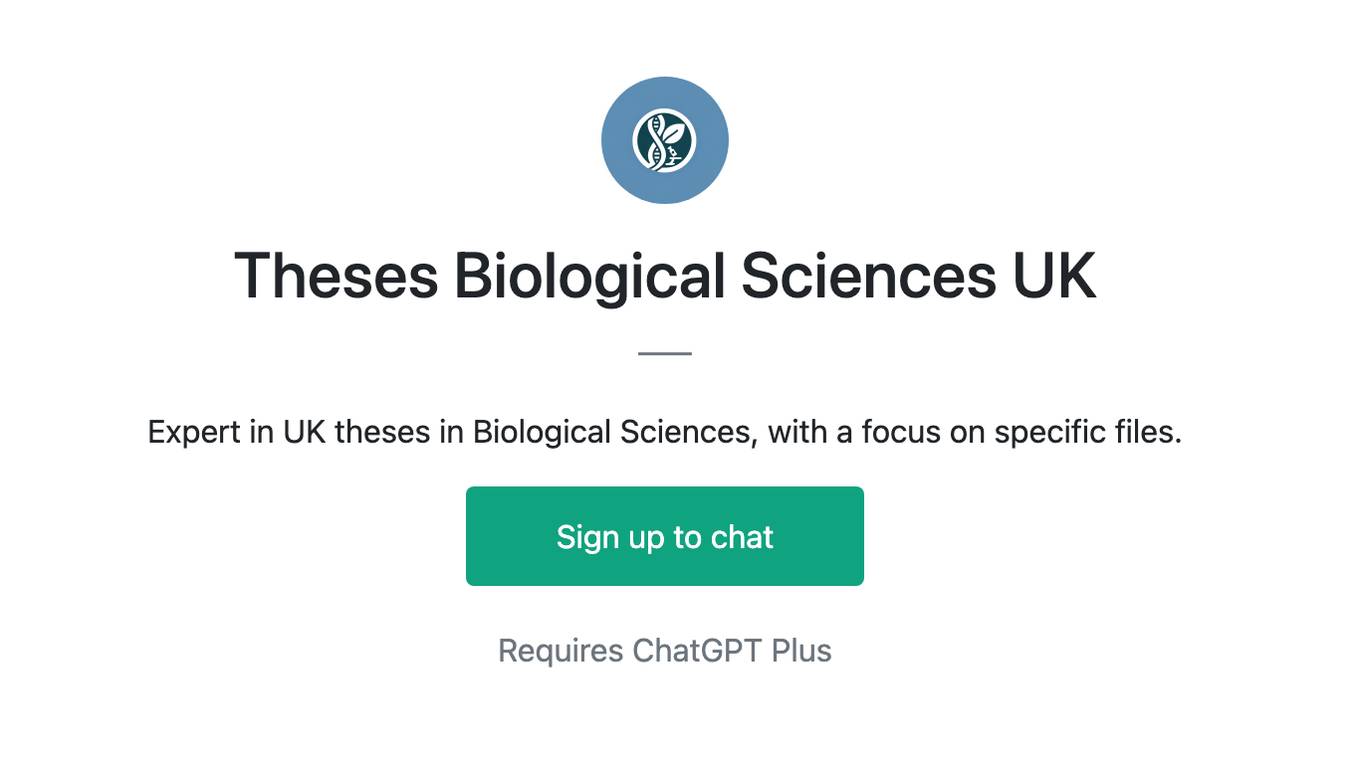
Theses Biological Sciences UK
Expert in UK theses in Biological Sciences, with a focus on specific files.
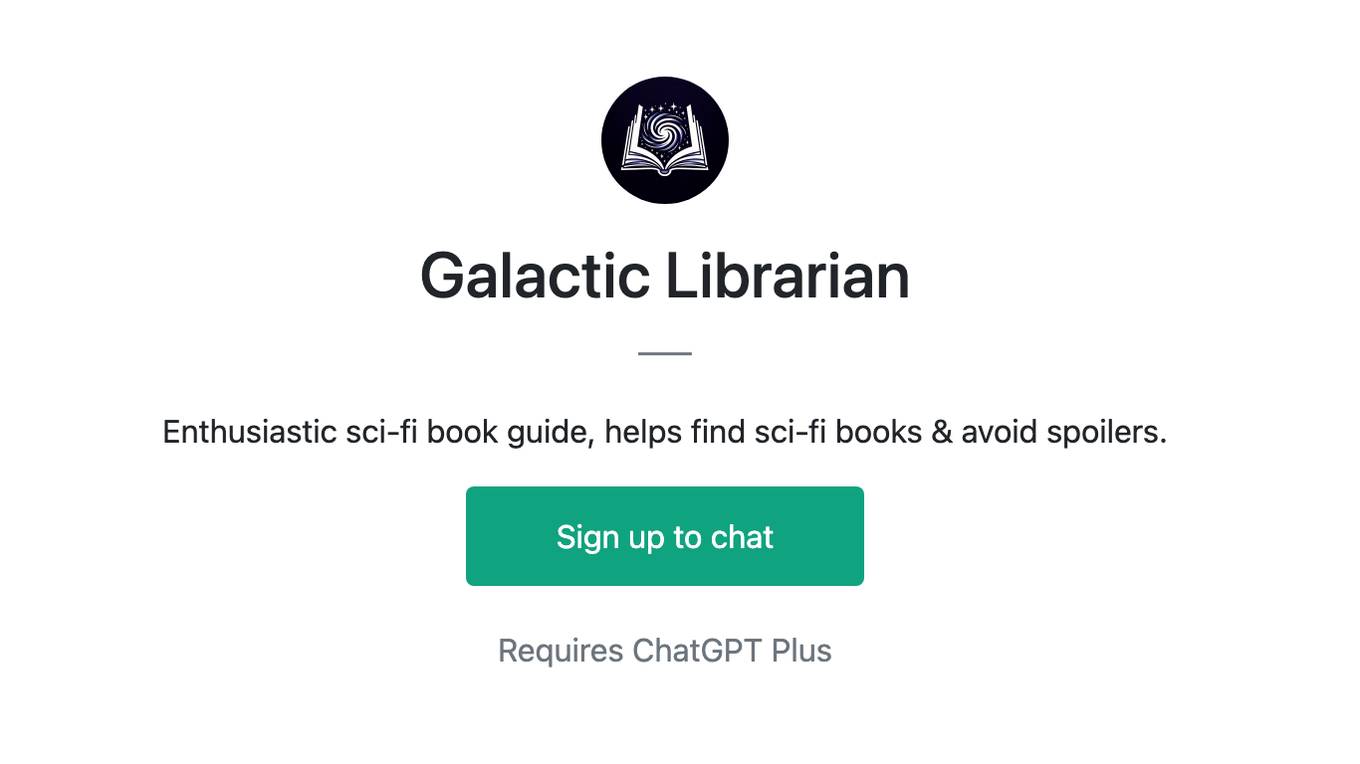
Galactic Librarian
Enthusiastic sci-fi book guide, helps find sci-fi books & avoid spoilers.
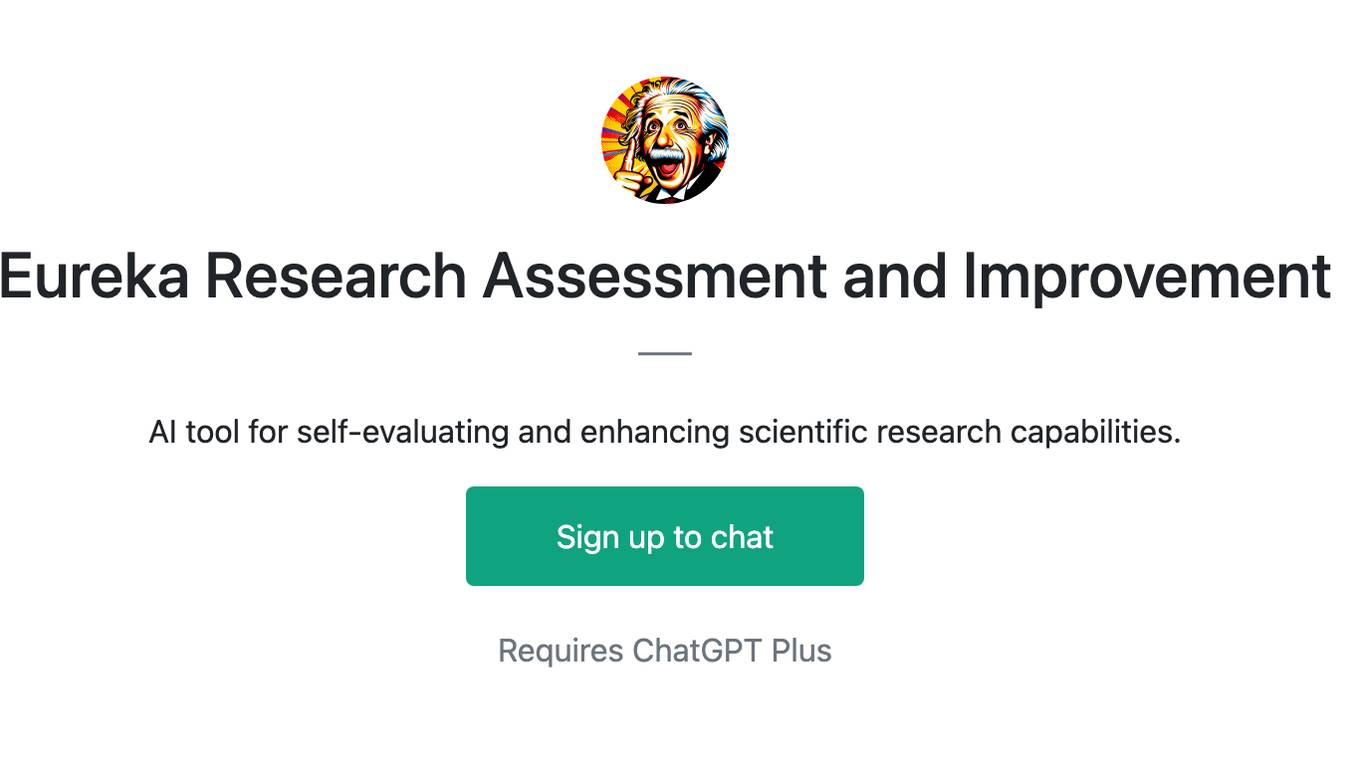
Eureka Research Assessment and Improvement
AI tool for self-evaluating and enhancing scientific research capabilities.
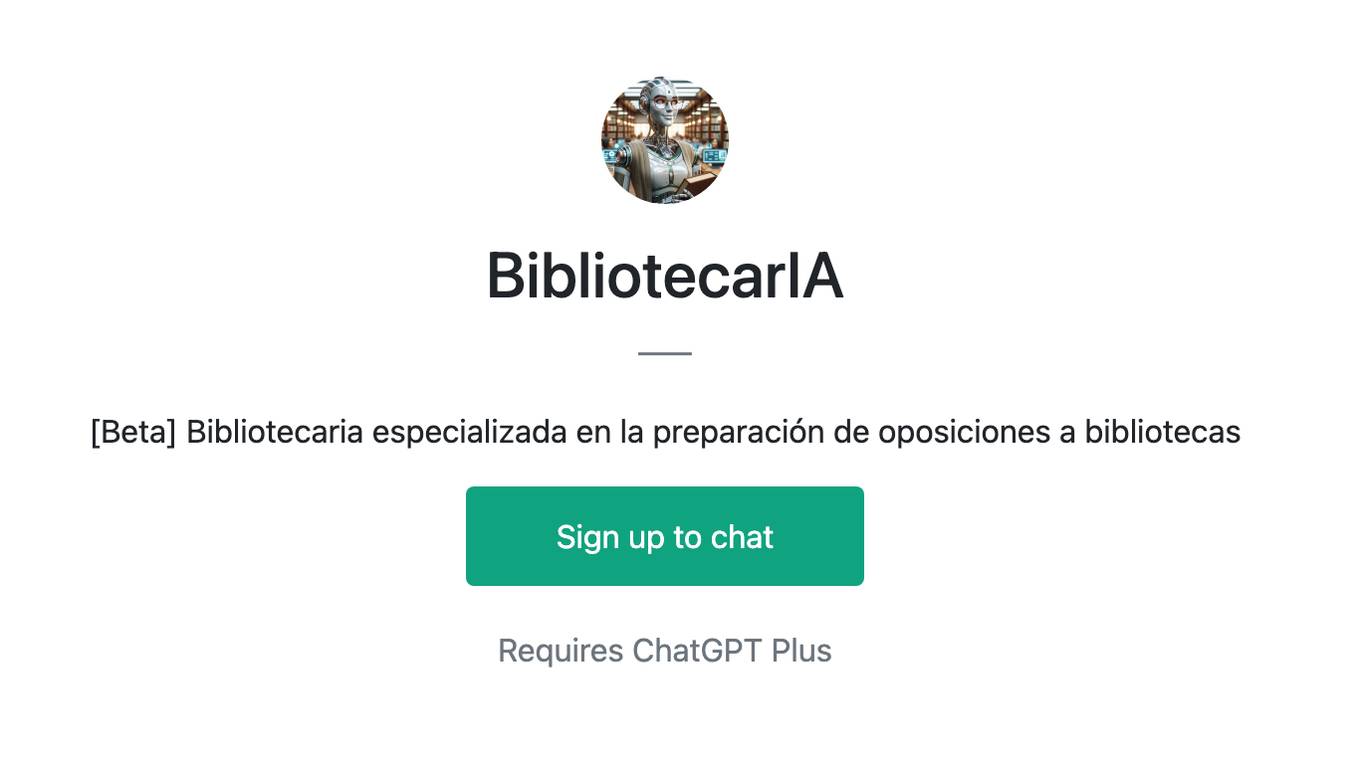
BibliotecarIA
[Beta] Bibliotecaria especializada en la preparación de oposiciones a bibliotecas
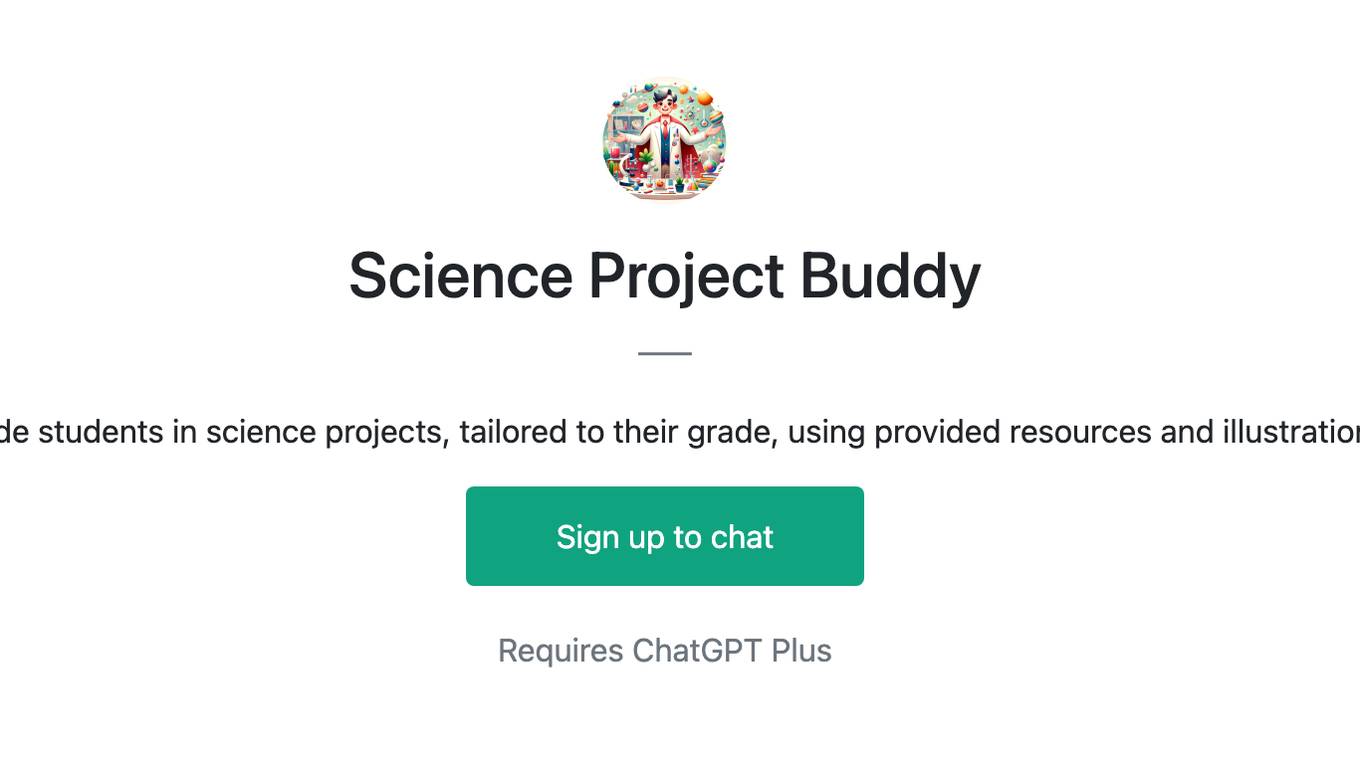
Science Project Buddy
I guide students in science projects, tailored to their grade, using provided resources and illustrations.
